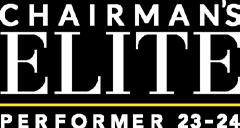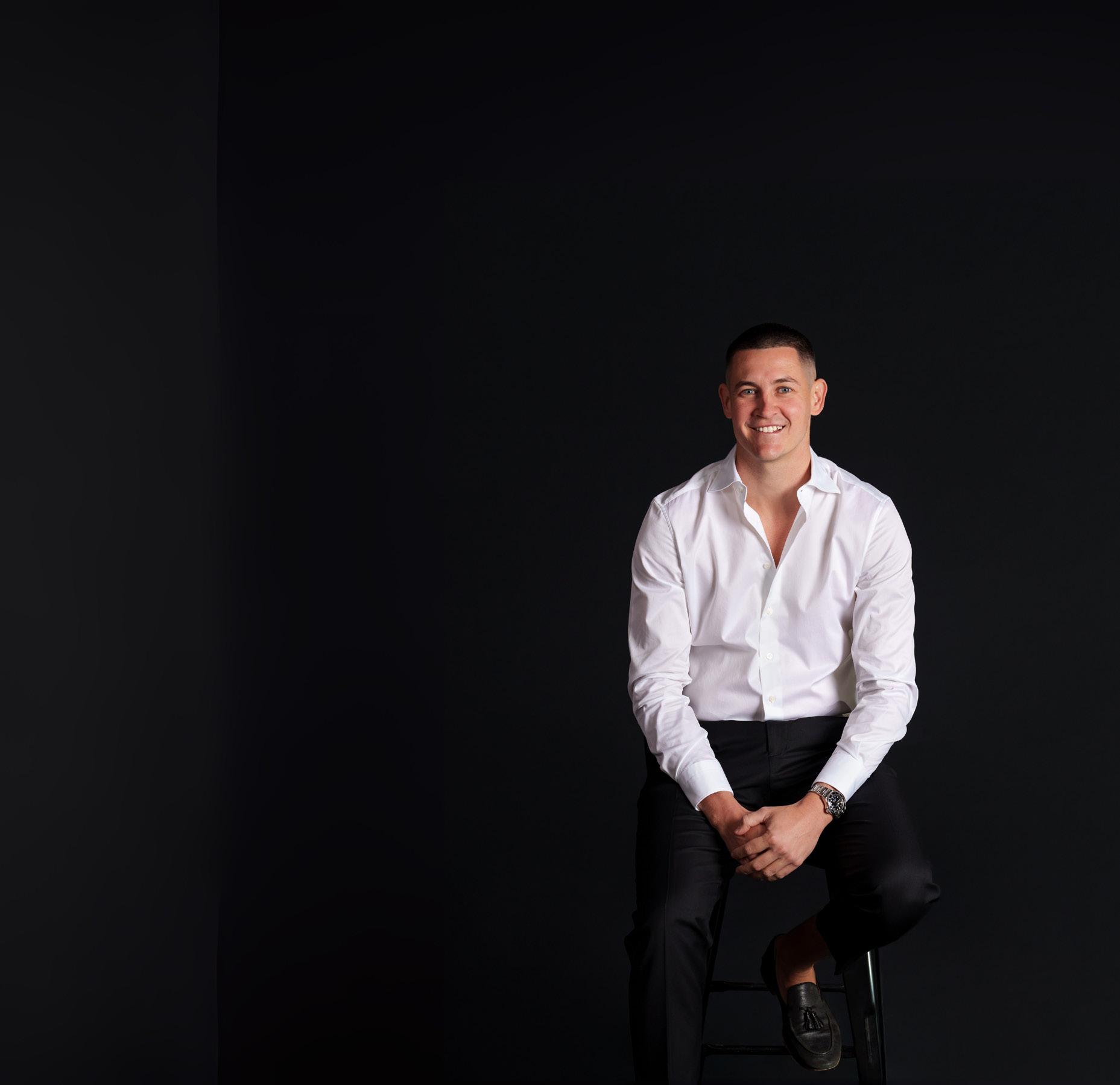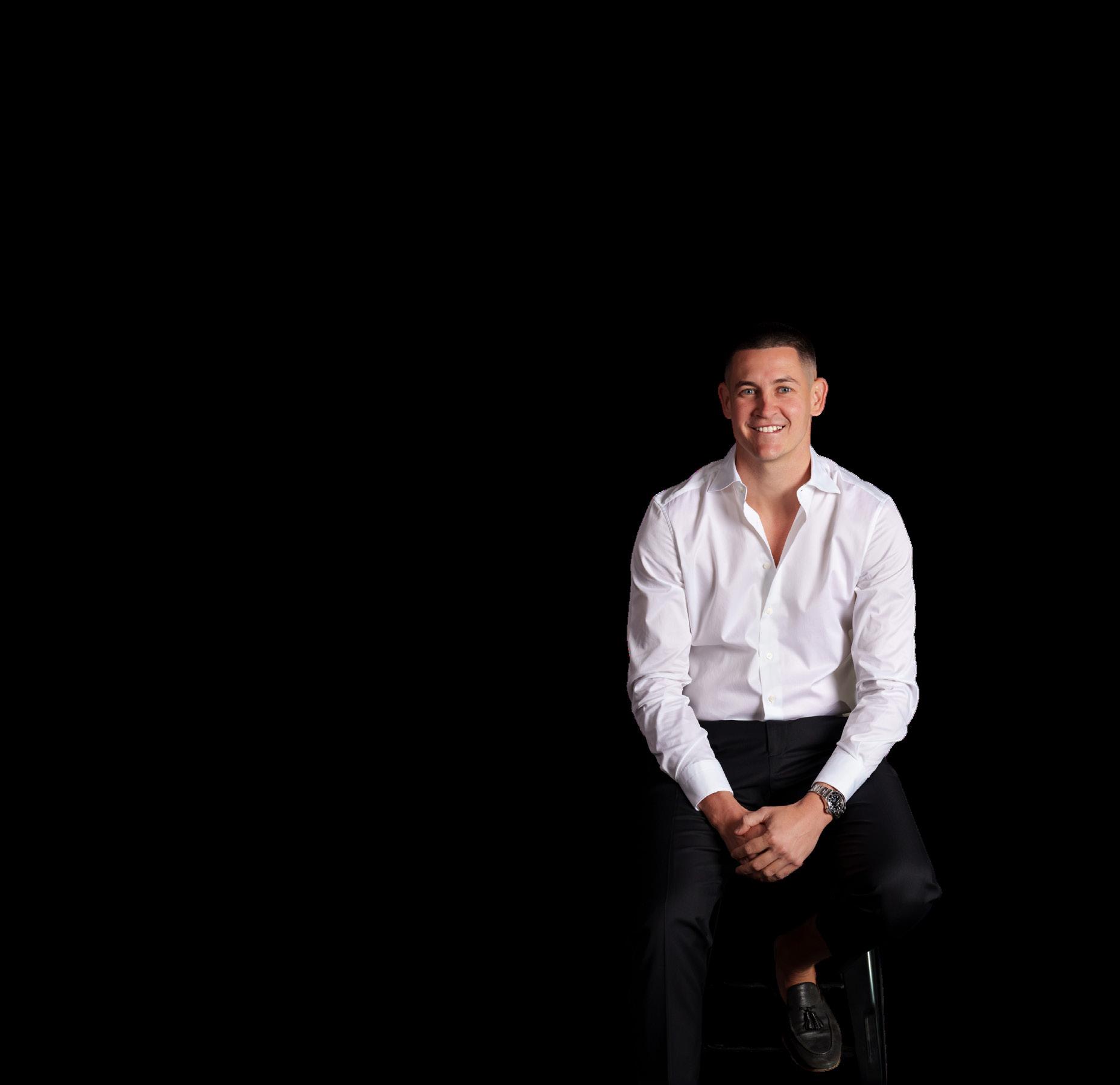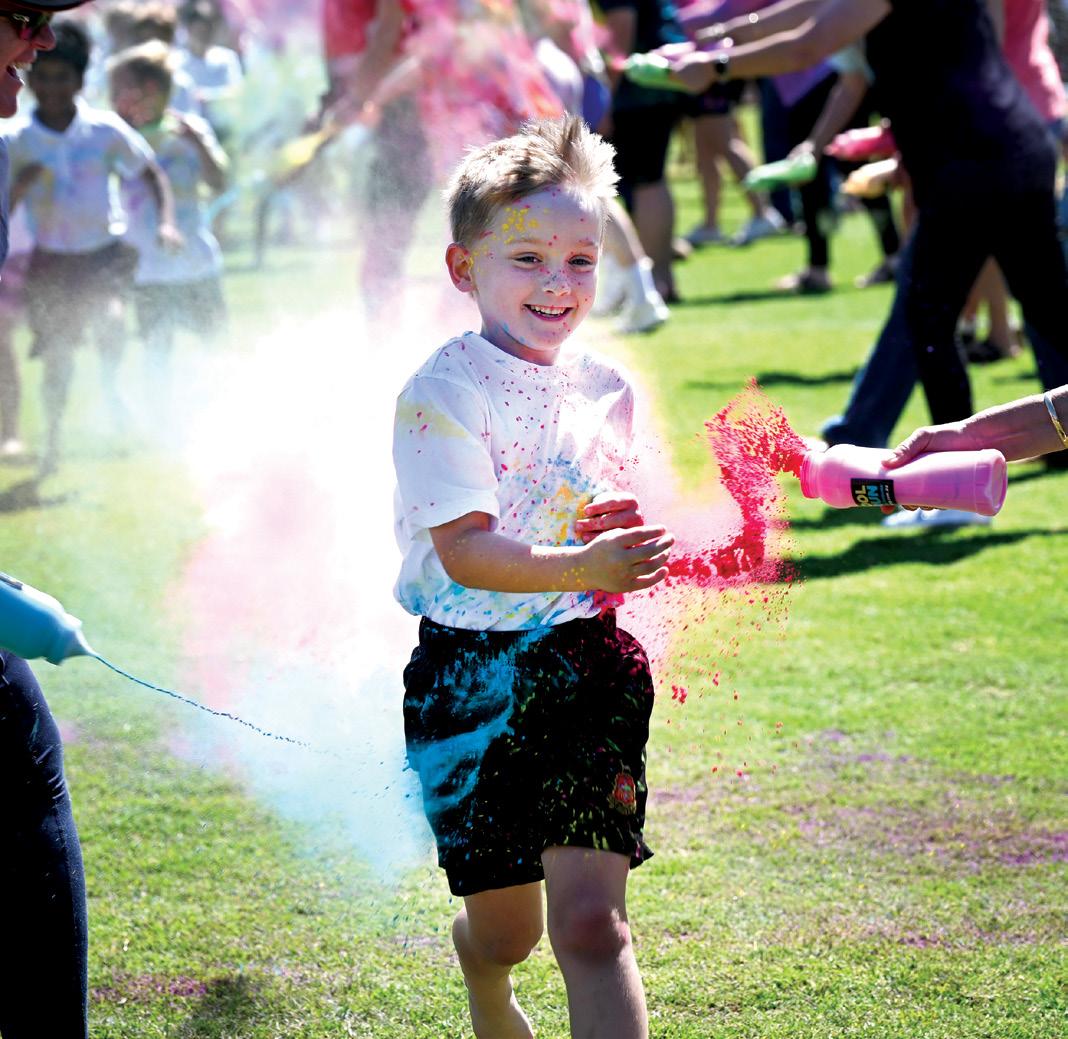

Around the Classrooms at RGS Highlights
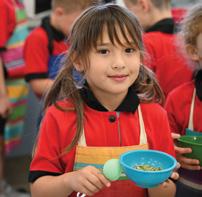
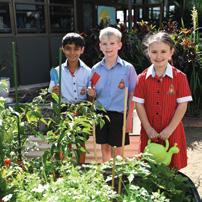
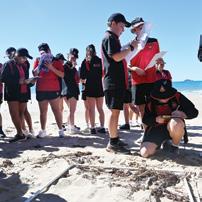
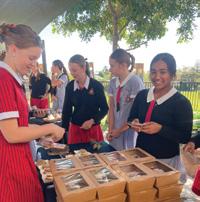
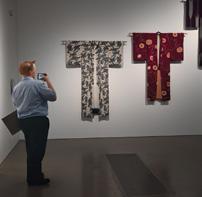
PRIMARY COOKING
Fairytales in the Kitchen Year 1 students engaged in a Fairytales in the Kitchen unit, integrating English and Food Technology. Students explored how stories can inspire food choices by preparing dishes linked to classic tales such as The Gingerbread Man and Goldilocks’ Porridge. The unit emphasised literacy in the kitchen, with students reading and interpreting recipes and following sequential instructions. This supported the development of comprehension, vocabulary, and critical thinking in real-world contexts. Students also developed practical technology skills, including safe food handling, measuring, and evaluating outcomes, while encouraging creativity and problemsolving. Linking literature to food experiences showed how texts can extend beyond the page into everyday life. This cross-curricular approach enriched literacy and practical learning.
Thank you RGS CoCurricular Sponsors. For sponsorship enquiries contact Todd Wells, Director of Co-Curricular at twells@rgs.qld.edu.au
YEAR 3 SCIENCE
Plant Science Competition
Class 3W entered the Hermitage Research Facility Schools Plant Science Competition as part of its life and living studies in Science, placing third nationally in the Year 3 to Year 6 division. The class was also awarded a Highly Commended in the Most Outstanding Team entry for Prep to Year 3 classes. The competition’s theme this year was ‘Insects in Agriculture’, with the competition receiving over 400 entries from 38 schools across Australia. The competition aimed to stimulate interest in science and agriculture in young people and to promote science and agriculture as a rewarding and exciting career choice. Part of the competition involved the students planting a vegetable. 3W chose zucchinis, and documented their growth, including observations, measurements, pictures and research. The class also entered the Art competition.








YEAR 8 GEOGRAPHY
Environment Health Check
The Year 8 cohort travelled to Ritamada for a Geography field trip. Armed with their Coastal Landscapes booklets, the budding geographers drew sketches, analysed the different kinds of debris found along the beach, and investigated the general health of the sand dunes, all with the aim of observing both the natural and human erosion processes at work in this serene environment. The blue skies and gentle wind could not have been a better backdrop as students reflected on the importance of maintaining coastal areas, like Ritamada. Upon return to their classrooms, students used their findings to inform a structured geographical report that analysed the data and made practical recommendations for sustaining both the beauty and function of this natural environment for generations to come.
YEAR 9 CAFÉS
Pop-Up Cafés
Year 9 Food Technology students brought learning to life by planning, preparing and running two outstanding pop-up cafés: Darumbal Delights and Bushland Bites Studying Australian native foods, students explored how these ingredients have been hunted, harvested and utilised for thousands of years by First Nations peoples, for both nutritional and medicinal purposes. They deepened their understanding of the cultural significance and modern potential of these ingredients. Working in teams, students designed meals that included lemon myrtle, wattleseed, bush tomato, saltbush, and quandong. From menu design and food preparation to café setup and customer service, the students showcased impressive skills in teamwork, problem-solving and food presentation. The process helped students appreciate the connection between planning, evaluation and continuous improvement.











YEAR 11 DESIGN
An Eye for Design Year 11 Design students visited the Rockhampton Museum of Art to support their assessment task. The design brief challenged the students to develop a product, service, or environment that strengthened community connection and supported the museum’s ongoing growth. Students observed how visitors engaged with exhibitions, and considered ways to expand these opportunities. They gathered research by photographing, sketching, and discussing ideas, while also reflecting on how design can enhance community participation. This hands-on visit provided valuable context for their projects, linking classroom learning to a real-world challenge. Working within the museum environment, students connected theory to practice, explored innovative possibilities, and developed creative solutions highlighting the importance of community involvement in the arts.








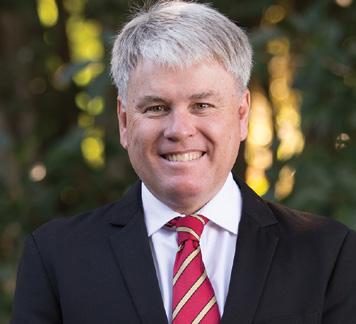
The power of developing skills
At The Rockhampton Grammar School, we have long held the belief that education is about much more than the acquisition of knowledge – it is about developing the skills, confidence, and character to navigate an ever-changing world. In 2025, this truth feels more relevant than ever. The pace of change in society, industry, and technology means that our students will be entering futures that are not only unknown, but in many cases, unimaginable to us today. To thrive, they will need more than facts and formulas; they will need the ability to think critically, to adapt, and above all, to solve problems.
On pages 12–13 of this edition, you will read about an exciting initiative that brought these ideas to life. STEM Punks Education CEO and Programme Director, Michael Holmstrom, visited RGS during Term 3 to guide our students through workshops that were as engaging as they were challenging. While the sessions used the language of robotics, coding, and artificial intelligence, the underlying message was clear: the greatest skill our students can develop is the ability to approach problems with creativity, resilience, and critical thought.
Michael’s words resonated strongly with me – particularly his reminder that the greatest barrier for many young people is the phrase “I can’t do that.” Time and again, he has seen students move from hesitation to confidence, leaving workshops saying: “I can do this, I understand it, and I love doing it.” At RGS, we want every student to have that same experience: to see themselves as capable problem solvers, ready to engage with challenges rather than shy away from them.
Problem solving is not confined to the STEM classroom. Whether on the sporting field, in the arts, within leadership opportunities, or in day-to-day life, our students are constantly being asked to think critically, to test solutions, and to learn from experience. This is why we place such emphasis on providing a broad education –one that nurtures both intellect and character.
As we look to the future, I am heartened by the enthusiasm our students show when faced with challenges. They are curious, thoughtful, and determined. With the right guidance and opportunities, they will not only adapt to the future but shape it. At RGS, we are proud to play our part in equipping them with the skills and mindset to do exactly that.

The Rockhampton Grammar School takes seriously the challenge of preparing students for today’s world. We treat each student as a whole person through a balance of academic, sporting, co-curricular and social activities. Our School motto is Macte Virtute et Litteris or Grow in Character and Scholarship.
Capricornus Quarterly is published by:
The Rockhampton Grammar School
Archer Street, Rockhampton QLD 4700, Australia
www.rgs.qld.edu.au
(+61) 07 4936 0600
ISSN 1839-4663
©2022 The Rockhampton Grammar School
Dr Phillip Moulds, Headmaster 07 4936 0615
Headmaster@rgs.qld.edu.au
Enrolment enquiries
The Registrar, Mrs Marissa Holloway 07 4936 0700
Registrar@rgs.qld.edu.au
Editorial & Advertising
Mrs Ashleigh Harvey, Director Development and Communications 07 4936 0668 aharvey@rgs.qld.edu.au
Mrs Rachael McDonald 07 4936 0776 rmcdonald@rgs.qld.edu.au
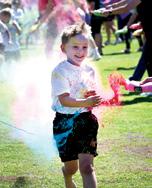
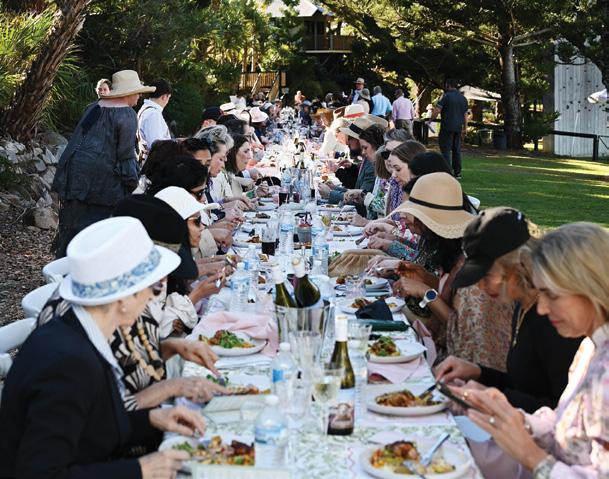
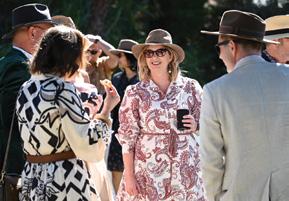
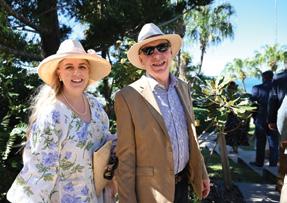
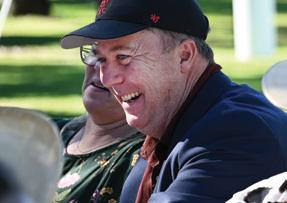
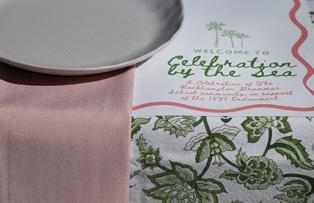
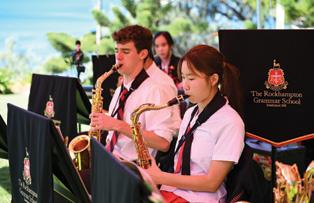
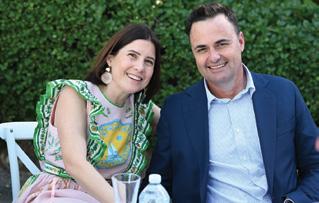
Celebration by the Sea
A Long Lunch at Ritamada
In July, more than 200 guests gathered by the sea to enjoy the Ritamada Long Lunch, a signature event on the RGS calendar. Current parents, staff, alumni and past parents came together for a day of fine food, warm company and strong school spirit.
The biennial luncheon raises funds for the School’s bursary programme, the 1881 Endowment, which helps ensure opportunities for future generations of Grammarians. Guests were treated to a five-course menu in a world-class coastal setting, accompanied by performances from talented RGS music students.
The location itself carried deep significance. Ritamada was gifted to the School in 1971 by the child of a foundation student. The enduring spirit of that generosity continues to inspire today, with the Long Lunch serving as both a celebration of community and a call to give back for the benefit of those yet to come.
The School extends its sincere gratitude to the sponsors whose generosity made the event possible:
• Major Sponsor – McGrath Rockhampton
• Welcome Drink Sponsor – RGS Alumni
• Silver Sponsors – Lily & Lotus, South Geldard Lawyers, Riverside Waters, Cocobrew, InvestRight Wealth Management, Inspirations Paint, JRT, Morgans, Shanahan Swaffield Partners, Hotondo Homes, City Printing Works
• Bronze Sponsors – Stewarts and Morrison CQ Agencies
A special acknowledgment is extended to the RGS Alumni Association for their invaluable work in connecting with the wider RGS community and securing support for the event.
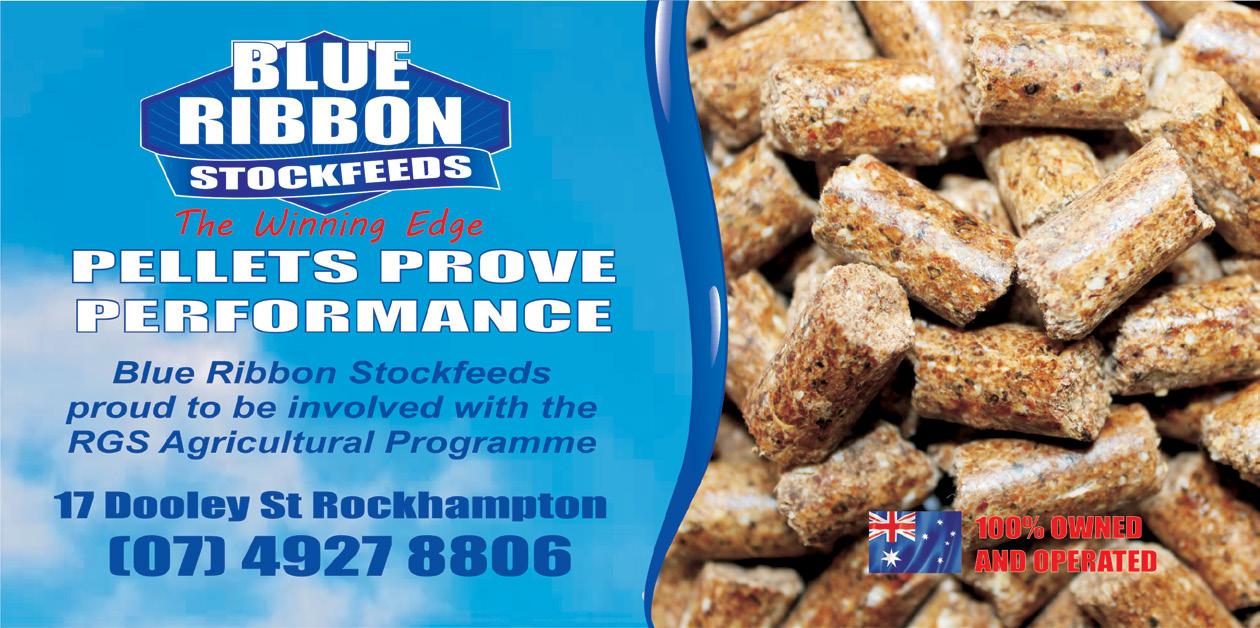

Study Tours
Japanese visitors
The growing partnership between The Rockhampton Grammar School and Tokyo’s Sugamo Gakuen school continued during Term 3, with RGS hosting two Study Tour groups from the Japanese school in August.
Each group had the opportunity to experience boarding life in Luck House, attend classes alongside Year 10 students, and enjoy a memorable camping adventure at Ritamada.
Their itinerary also included visits to some of Rockhampton’s iconic attractions – Capricorn Caves, Great Keppel Island, Dreamtime Cultural Centre, and the Rockhampton Museum of Art.
RGS International Programme Co-ordinator Margot Palmer said the students embraced every moment with enthusiasm and curiosity, making the most of their time in Rockhampton.
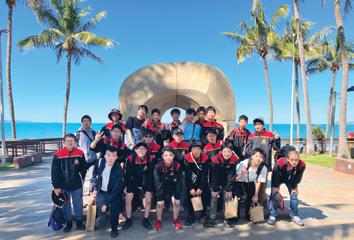
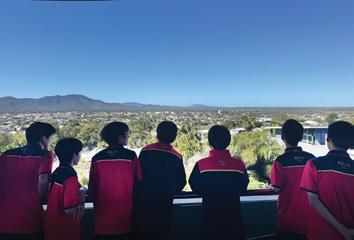
Ms Palmer said they even had some students returning to RGS who joined last year’s Study Tour.
“They were a lot more confident this year and more familiar with the School and the region. They pushed themselves to do more activities and helped communicate with the new students about the different opportunities on the tour,’’ Ms Palmer said.
It is a different experience for the Japanese visitors – finding confidence to practice their English, the structure of a boarding school (coming from a day school), the different food, and different morning and afternoon tea breaks.
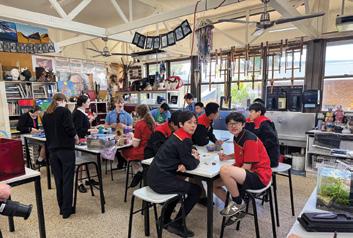
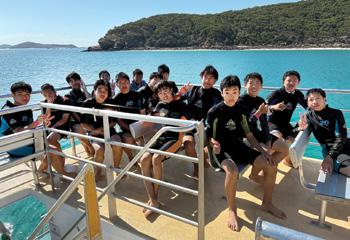
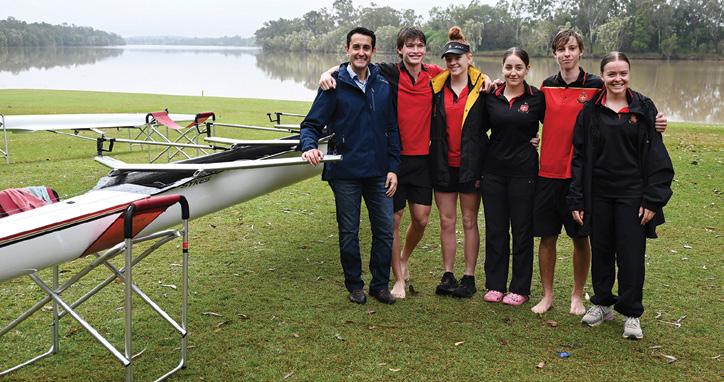
RGS Primary is looking forward to welcoming Year 5 students from Tamagawa Gakuen in Term 4.
This is the second year Tamagawa has visited RGS and will again stay with RGS host families. The Tokyo private school is a Kindergarten to Year 12 school, and university.
Ms Palmer said Primary was already organising activities on the RGS campus, including games and art workshops, while the Tamagawa students will also have the opportunity to visit different sites in our region during the weeklong visit in October.
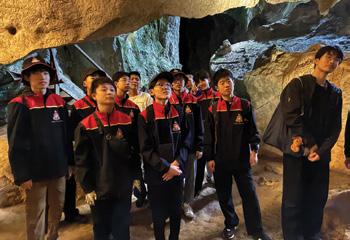
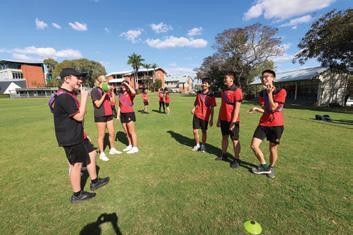
RGS Rowing joins Olympic countdown
The RGS rowing community joined the celebrations to mark 7 years until the 2032 Olympic and Paralympic Games in Queensland. Queensland Premier David Crisafulli and Minister for Sport and Racing and Minister for the Olympic and Paralympic Games Tim Mander visited Rockhampton’s Fitzroy River in July to celebrate the milestone, and received some rowing tips from RGS rowers. Rockhampton’s Fitzroy River was earlier this year announced as the host venue for the 2032 Olympic Games rowing and canoe sprint events.
IN THE NEWS
It’s important for a community to share its voice. That can be through bravely speaking in public on an unknown topic, bursting into laughter to celebrate moments of fun, or sharing important messages to help others.
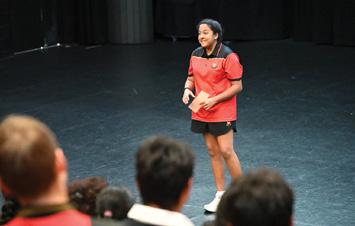
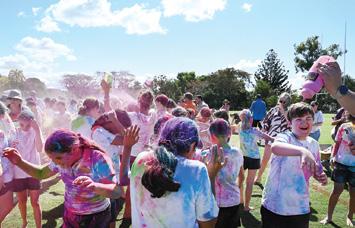
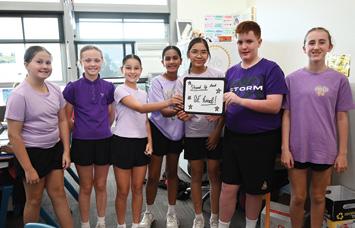
Finding their Voice
Would you be brave enough to enter a public speaking competition, not knowing what your speaking topic was? A group of RGS Secondary Schools showed great courage in joining the Interhouse Impromptu Speech Competition. Students from Years 8 to 12 were challenged to deliver a two-minute speech on a surprise prompt, with juniors responding to one topic and seniors tackling two different topics. The questions ranged from issues such as “People under the age of 14 should not have social media” to more reflective prompts like “If you could teleport anywhere, where would you go?”. Wheatley House topped the points table.
Colourful Fundraising
The RGS Primary community, with the amazing support of the RGS Parent Association, added a splash of colour to the School’s Bottom Oval in Term 3 – all in the name of raising funds to support future RGS Primary projects. RGS staff and parents were all smiles adding some colour to the students’ white t-shirts. RGS teachers also joined the fun – getting slimed! Well done Mrs Harris, Mrs Coonan, Ms Nugent, Mrs Williams, Mr Libke, Mrs Doyle, and Mr Rooks. The Colour Run raised over $40,000. The event also provided the first official outing of the School’s new big screen, proudly donated by the RGS Alumni.
Be Bold, Be Kind, Speak Up
RGS Primary students embraced the National Day of Action Against Bullying and Violence during Term 3, wearing their purple shirts and sharing messages of kindness, courage, and respect in their School community. RGS Head of Primary Mrs Kate Harris said in Primary they talked about the difference between everyday conflict and bullying. Mrs Harris said at times children will argue, disagree, or act unkindly towards one another, and this behaviour still needs guidance, correction and consequences. She said bullying was repeated, targeted, and intentional behaviour that causes harm and involves an ongoing misuse of power.
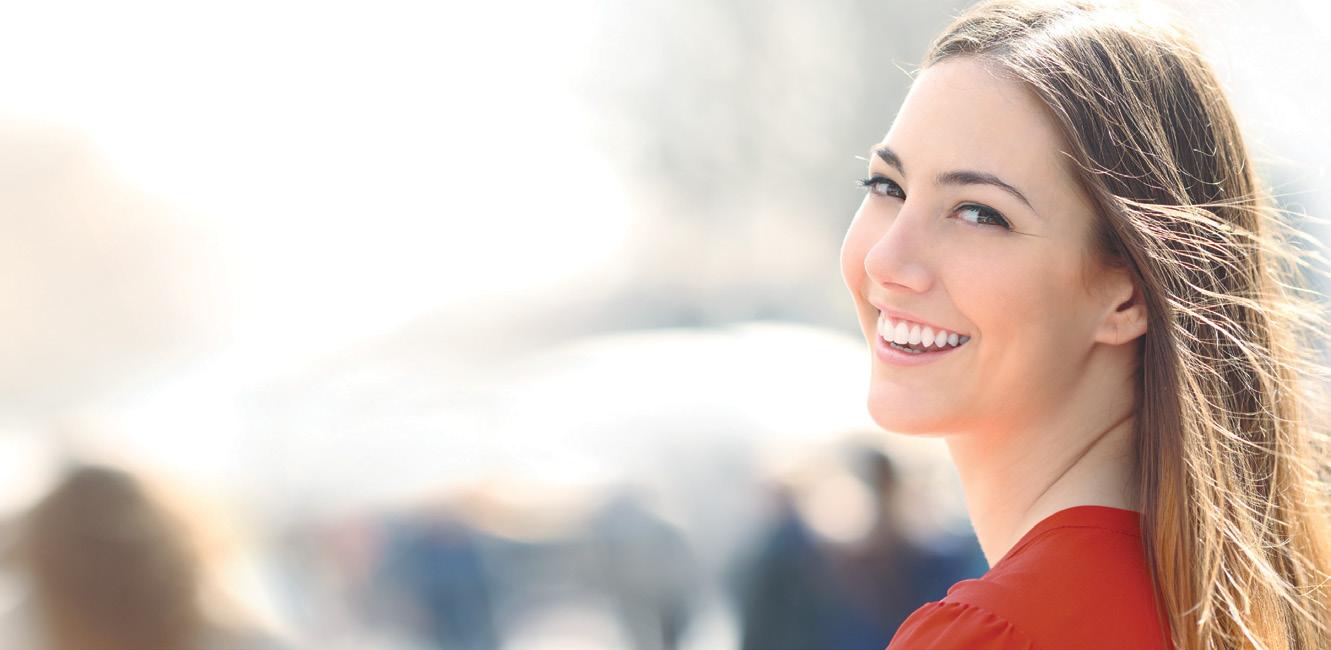
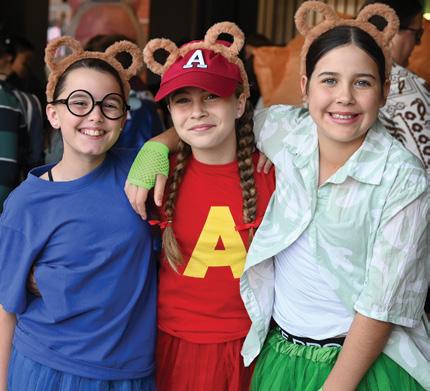
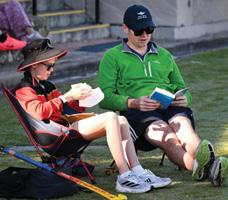
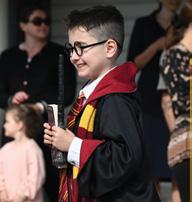
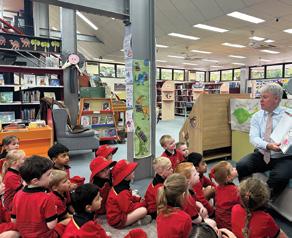
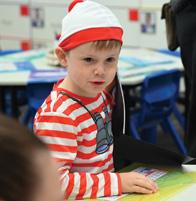
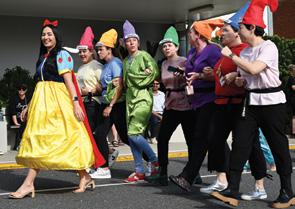
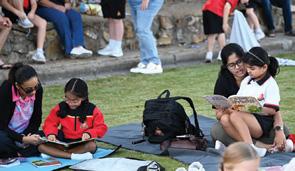

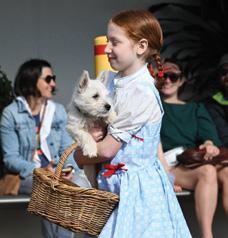
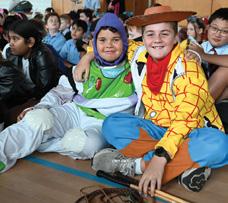
Book an adventure
RGS Primary students embraced all things Book Week in Term 3, joining Australian schools that celebrated 80 years of Book Week.
Book Week at RGS embarked on a journey beyond the pages of a book.
Primary students started the week dressing up as a character from their favourite book and joined a Book Week Parade for their families and friends.
Teachers also dived into the Book Week activities, dressing up for the parade and decorating their classroom doors.
Celebrating National Science Week
In celebration of National Science Week, RGS embraced the theme “Decoding the Universe – Exploring the unknown with nature’s hidden language” through a series of activities that brought together students from across year levels.
Led by the enthusiastic Senior Science Ambassadors Amulya Bajagai, Miu Namba, Evana Tsang and Zoe Williams, the week fostered meaningful connections between the Secondary and Primary schools’ budding scientists and their older mentors, creating a collaborative and inspiring atmosphere.
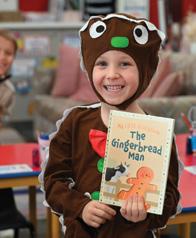
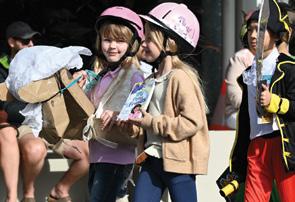
Students enjoyed listening to guest readers, including RGS Headmaster Dr Phillip Moulds and Head of Primary Mrs Kate Harris, in the RGS Library while also having the opportunity to join the Reading Out of Poverty (ROOP) programme by purchasing pre-loved books.
RGS Deputy Head of Primary (Operations and Students) Mrs Alicia Odewahn said choosing a magical story to take home for a gold coin donation was helping to share the joy of reading with others in communities where books are not as readily available.
The week-long celebrations of reading culminated with students, and their families, enjoying “Breakfast and Books” on the RGS Bottom Oval before school on the Friday.
Picnic rugs and portable chairs were scattered across the oval as the families enjoyed their BBQ Breakfast, kindly catered by the RGS Parent Association.
Students engaged in hands-on, imaginative science experiences, sparking curiosity and creativity. Highlights included:
• Designing Aliens: Using craft materials and playdough, students imagined and constructed extraterrestrial life forms, exploring concepts of adaptation, gravity, ecosystems, energy and food in alien environments.
• Moon Phase Modelling: Oreo biscuits became a delicious tool for learning as students recreated the lunar cycle, gaining a tactile understanding of the moon’s phases.
• Cosmic Dioramas: With dark backdrops, glue, glitter, and sand, students crafted colourful galaxies, visualising the vastness and beauty of space.
• Origami Rocket Launches: Combining physics and engineering, students folded and launched paper rockets, experimenting with trajectory and propulsion.
These activities celebrated scientific inquiry and built a sense of community across the School.
The RGS Science Department also hosted a “Universe” themed Science Trivia Night. Questions spanned from Physics, Biology, Chemistry, Marine Science, and Psychology to Science Fiction and pop culture.
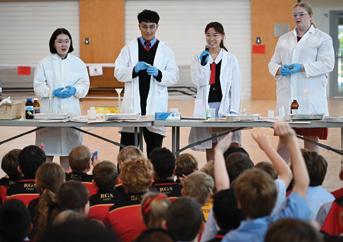
Distinguished RGS Alumni
The annual Distinguished RGS Alumni Awards Dinner was held in the School’s Memorial Assembly Hall on 19 July. Alumni acknowledged were a leading politician, a community stalwart, and an inspiring industry leader. The Dinner also honoured the long service of an RGS past staff member.
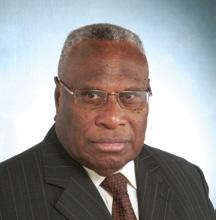
Distinguished Alumni –Sir John Kaputin KBE, CMG, phD (Hon) (RGS 1956 – 1959)
Following his education at RGS, Sir John became a pioneer in Papua New Guinea’s sporting history. In 1960 he was the first Indigenous player to compete in Port Moresby’s all-white rugby league competition. He again made history in 1962 when he was selected to represent the Territory of Papua and New Guinea in the British Empire and Commonwealth Games in Perth, competing in the 440-yard sprint event. In recognition of his groundbreaking achievements, Sir John was the inaugural inductee into the Papua New Guinea Sporting Hall of Fame in 2011.
Motivated by a deep commitment to serving his people, he played a pivotal role in the discussions and planning that led to PNG’s independence in 1975. Sir John was elected as the Member for Rabaul Open in the National Parliament, a position held from 1972 to 2002. During his three decades in public office, he served in numerous ministerial and leadership roles within the PNG Government.
In recognition of his service, Sir John was appointed Commander of the Order of St Michael and St George in 1983 and was knighted as a Knight Bachelor in 1997.
From 2005 and 2010, Sir John served as Secretary-General of the African, Caribbean and Pacific Group of States (ACP) – the highest international office ever held by a Papua New Guinean.
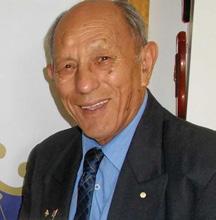
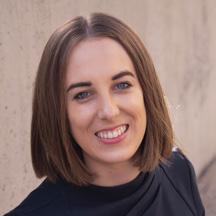
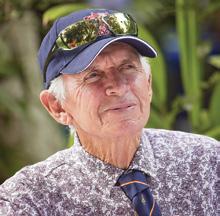
CQ Community Contribution Award –Raymond Young (RGS 1941 – 1943)
Raymond served his community through leadership roles in the YMCA, the Chinese community, the Masonic Lodge, the Justices of the Peace, and Rotary. His many honours include the Order of Australia Medal (2001) for outstanding service to the community of Rockhampton through sporting, youth and service organisations, the Rotary Paul Harris Fellowship, and the Rockhampton Citizen of the Year award in 1999. Raymond was also a Life Member of Gymnastics Queensland, after coaching the sport for 67 years.
Young Alumni Award –Jessica Kahl (RGS 2007 – 2012)
During her engineering tertiary studies, London-based Jessica became the Founder and Managing Director of Dream Big Australia, a national charity she established in 2015 to support and empower early-career women and gender-diverse individuals in science, technology, engineering, arts, and mathematics (STEAM). Jessica was the recipient of the 2022 LearnX Gold Award for Best Learning Model, multiple CQUniversity Opal Awards, and a High Commendation from Engineers Australia for her contributions to gender diversity in engineering.
Honorary Life Membership –Graham Bloxsom (RGS 1990 – 2017)
Graham dedicated 28 years of service to RGS, his contributions beyond any single job title. His work encompassed: boarding supervisor, sports coach, athletics organiser, gymnasium coordinator, Ritamada caretaker, Port Curtis farmhand, Show Cattle Team assistant, and school bus driver. His willingness to help in any area reflected his loyalty to the School. In 2017, Graham retired, marking the end of an era. He was the kind of person who stepped in wherever needed, who never sought the spotlight but was always there when it counted.
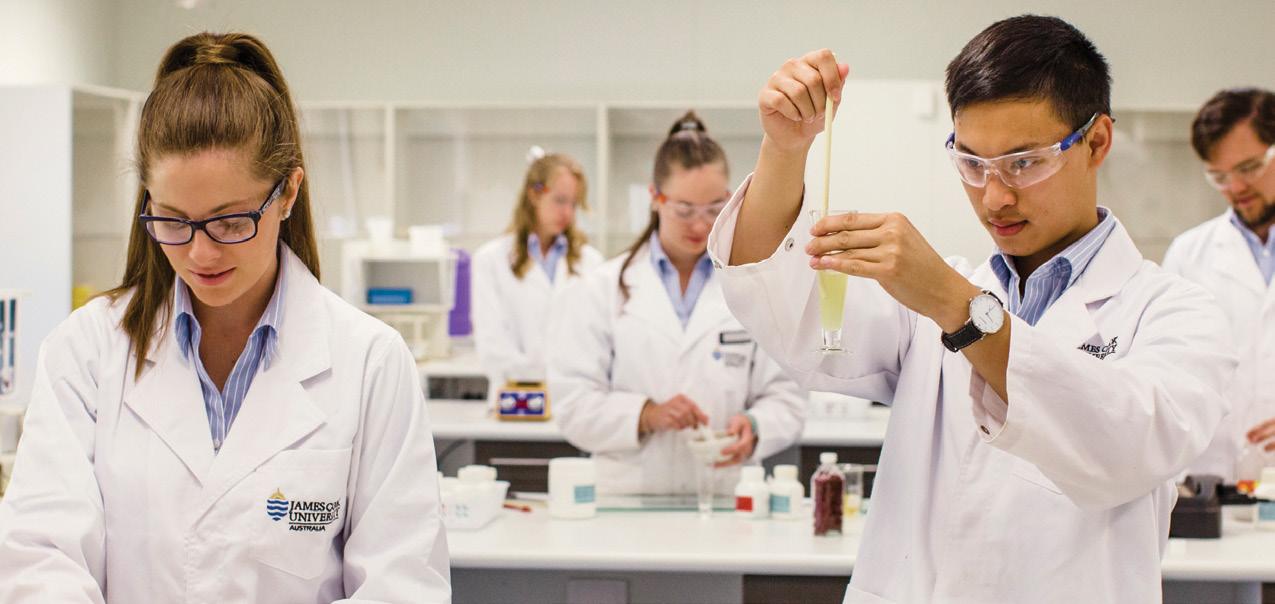
Are you in Year 12 and graduating this year? Secure your future with an early offer.
Enjoy the reassurance of knowing you have secured a place at JCU prior to ATAR results being released*. An early offer will empower you to finish Year 12 with confidence, having already secured your postschooling pathway.
* Offers are conditional on completion of the Queensland Certificate of Education (or equivalent). Other conditions may also apply.
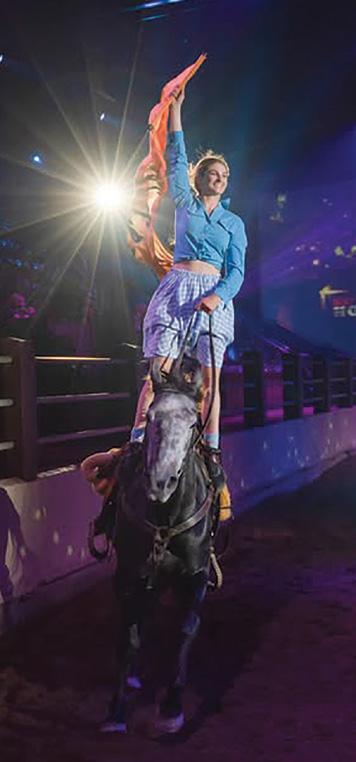
“Once I started, I knew this is what I wanted to do.”
Rena Werth (RGS 2022)
My story
Rena Werth (RGS 2022) grew up riding horses on her family property between Moura and Bauhinia in Central Queensland. Today, she takes centre stage, performing as a trick rider on the Gold Coast in the Outback Spectacular’s Heartland.
Rena, a self-taught trick rider, applied for the job after she finished a mustering contract and wasn’t sure what to do next. Just two days later she received a call and was preparing for an interview on the Gold Coast.
“It’s been a bit of a change – the traffic is one thing,’’ said Rena, who works from 3:30pm to 10pm at Outback.
Trick riding is not a common skill.
Rena attended a trick riding and kids horsemanship clinic when she was 13-years-old.
“Once I started, I knew this is what I wanted to do,’’ Rena said.
“After the clinic I started doing tricks on my mustering horse at home. It was okay, but not the safest thing I could be doing. I didn’t have the correct saddle or shoes, and the horse has to be trained for trick riding. I then saved up and bought a trick riding saddle and tried to train my own horse. He was so beautiful and gave everything a good go.”
Rena said a good trick riding horse was about their attitude and temperament.
“You want a horse that is quiet and can tolerate you, but they also need to run fast. You train them to stick to the outside of the fence, establish the pattern, and then you can start on tricks,’’ Rena said.
Rena is loving her sea change job.
Arriving at work in the afternoon she receives a show sheet and an afternoon sheet. The afternoon sheet includes rehearsal times and what horses are being used for different
routines. The show sheet outlines what they are performing during the night.
“They try to train people up in as many roles as they can. Some riders come in once a month, or some for every show. If someone is injured someone else can fill in,’’ Rena said.
“Most of the time I’m a trick rider, and I can do the stockperson role. I’ve also performed the aerialist routine in the wedding scene.”
Rena still remembers her first shift which involved watching the show before performing the following night.
“At that first shift, I was amazed I didn’t realise how everyone did everything,’’ Rena said.
“I was so excited about my first performance. It’s such a great supportive group of people.
“The venue can sit 1000 people. On show nights you look around at all the people and it’s crazy.”
Rena said she is unsure what her future holds, but for now she “absolutely loves” this job.
“It’s hard to find work for trick riding, especially in Australia, and it’s not something I can do forever because it’s tough on the body,’’ Rena said.
Rena, who still loves the “fun” of mustering on horseback, would also love one day to return to North America where trick riding is a much bigger industry. But for now, her heart is firmly in her job on the Gold Coast.
Discover more RGS Alumni stories in The Grammarian www.rgs.qld.edu.au/community/publications


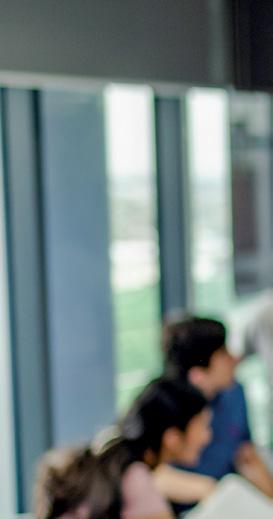

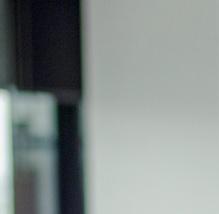

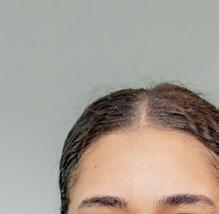
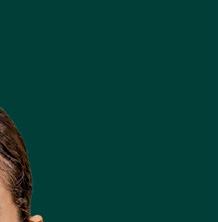


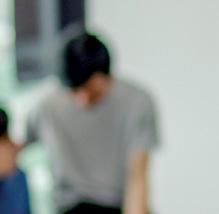
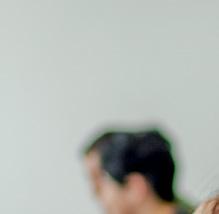
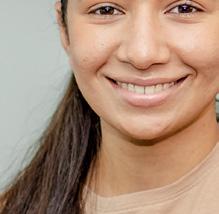

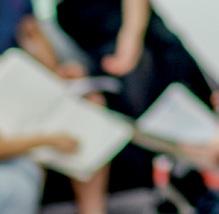
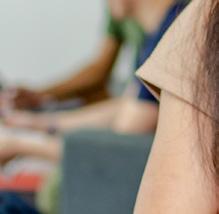
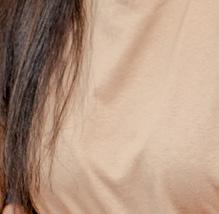

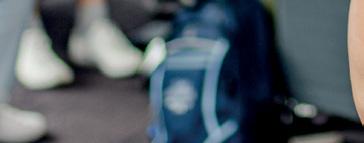


Unlock your future.
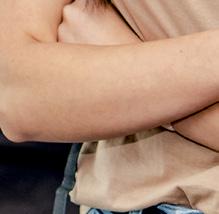

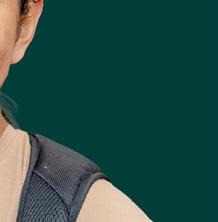



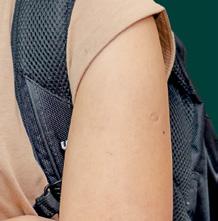
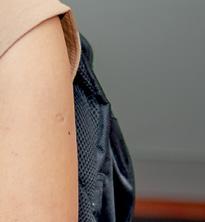
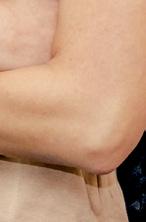
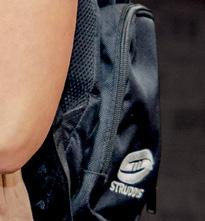
APPLY THROUGH THE PRINCIPAL’S RECOMMENDATION SCHEME.
Success at university is about more than just grades—it’s about motivation, passion and determination. At CQUniversity, we understand that your academic results may not fully reflect your potential or circumstances.
If you’re in Year 12, the Principal’s Recommendation Scheme offers an alternate pathway to eligible courses*. With your principal’s endorsement, you can secure an unconditional^ offer and a spot at CQUniversity.
Learn more at cqu.edu.au/prs.
*Some courses are not available with this scheme. Please visit cqu.edu.au/prs for details on excluded courses.
^Some courses have additional requirements and where noted, conditional off ers only will be made for these courses.



Day of Notables: A Year 6 tradition
The world is full of so many amazing people with inspiring stories to share. The annual Day of Notables again delivered a range of wellknown, and lesser-known stories, this year from people who have created legacies in human rights, acting, medicine, music, politics, scientists, and many more fields. Congratulations to this year’s eight finalists.
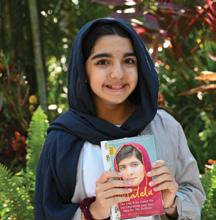
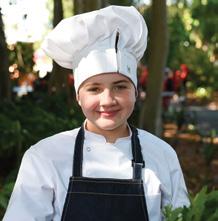
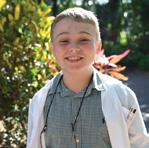
TATE CASEY
Fred Hollows
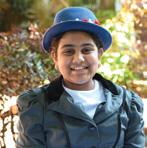
KEYA MAMADIGI
Dame Julie Andrews
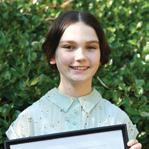
NUALA O’REILLY
Nancy Weir


Congratulations to our winners: Bahar Hosseininejad (Malala Yousafzai) and Maxwell Ray (Jamie Oliver)
BAHAR:
Malala Yousafzai – Malala is a Pakistani human rights advocate for the education of women and children in her native district.
In 2012, while on a bus after taking a school exam, Malala was shot in an assassination attempt targeting her for her activism. She was fortunate to recover. Malala also received the Nobel Prize in 2014, aged 17 years.
“I wanted to choose someone from the region I was from, in the Middle East. I searched up women who did great things in the Middle East and I immediately connected with Malala’s story. It was so crazy that I found someone so special.
“It has been such an honour to present my speech, to so many amazing people, that I have worked so hard for. It’s been tough to write a speech and remember it – I really didn’t think it would be possible to memorise such a long speech but I proved myself wrong.
“It’s been really crazy this whole experience and I’m grateful to everyone who made this possible. Everyone did such a great job with their speeches.
“My advice for other students would be to pick someone who has a really good story, and a story you connect with. If you aren’t passionate about their story you won’t be able to get into character that well.”
MAXWELL:
Jamie Oliver – An English celebrity chef, restaurateur and cookbook author, known for his casual approach to cuisine. He has fronted many television shows and opened several restaurants. His TV series, The Naked Chef, gained worldwide attention and he later opened his own chain of restaurants. Jamie was raised in his parents’ pub where he practised cooking.
“There’s a bit of a back story. I was sitting at Woolworths in the car with mum a few days before Term 3 and I was really stressed about what character I was going to do. We even called Nanna to see what she thought. I had so many people in mind and I thought it would be a disaster.
“I was thinking about Amazon founder Jeff Bezos, Jamie Oliver, Walt Disney or Beethoven.
“I went with Jamie Oliver as my first preference, Jeff Bezos as my second and Walt Disney third.
“It was very nerve-racking when I first did the speech and starting preparing for Day of Notables, but once you get into the finals you just have to do your best and let it all out.
“This is the first trophy I’ve ever won. I’m so happy. I was literally looking at mum when they called out my name and I’m pretty sure she was crying.
“Do speech and drama. It helps.”
In his time as a humanitarian and eye surgeon, Fred Hollows helped restore eyesight to thousands of people in Australia and overseas through the Fred Hollows Foundation. Born in Dunedin, New Zealand, in 1929, Fred originally looked at a life in the clergy before enrolling at Otago Medical School. Fred became an Australian citizen in 1989 and was named Australian of the Year in 1990.
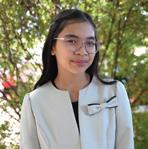
EZRIELA SIDHARTA
Hedy Lamarr
Hedy was an AustrianAmerican actress and inventor who pioneered the technology that would one day form the basis for today’s WiFi, GPS, and Bluetooth communication systems. Hedy was earlier a renowned actress, signing with the famed MGM Studios and moving from Europe to Hollywood. While in the USA, she followed her desire for innovation.
Dame Julie Andrews, born Julia Elizabeth Wells in 1935, is an English actress, singer, and author. She gained numerous accolades throughout her career spanning over eight decades, including an Academy Award, a British Academy Film Award, three Emmy Awards, three Grammy Awards, and seven Golden Globe Awards. Her films include Mary Poppins and The Sound of Music.
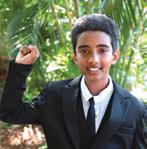
ABHINESH SIVASHANKAR
Nelson Mandela
A South African antiapartheid activist and politician who served as the first president of South Africa from 1994 to 1999, Nelson Mandela was the country’s first black head of state and the first elected in a fully representative democratic election. His government focused on dismantling the legacy of apartheid by fostering racial reconciliation.
An Australian pianist and teacher, born in Melbourne in 1915, Nancy Weir became a child prodigy on piano, at aged 13 performing with the Melbourne Symphony Orchestra. Nancy studied music in Germany and England. World War II interrupted her career, instead joining the Royal Air Force Intelligence. Nancy returned to Australia and continued her involvement with music.
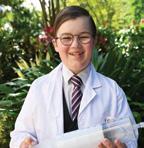
QUINTEN WALKER
Dr Frederick Banting
The Canadian pharmacologist, orthopedist, and field surgeon was awarded the Nobel Prize in Physiology or Medicine, with John Macleod, for his co-discovery of insulin and its therapeutic potential. He also had an interest in aviation. In 1994, Banting was inducted into the Canadian Medical Hall of Fame.
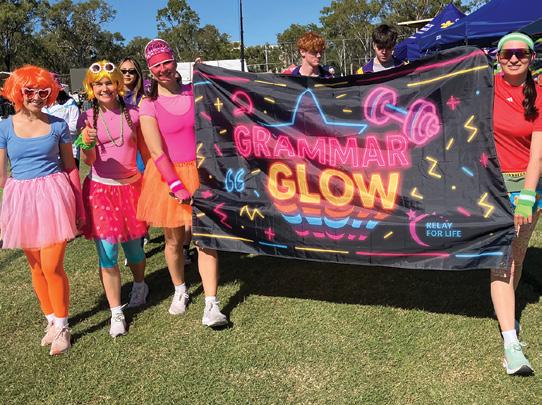
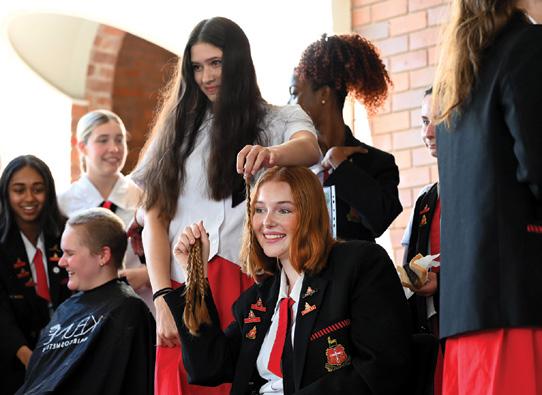
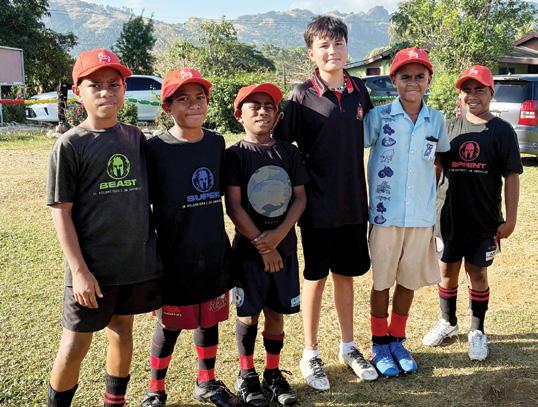

Community Support: Kindness in our hearts
Fundraising within a school community is about far more than dollars and cents. At its heart, it is an act of generosity and teamwork, where a community comes together with a shared purpose. It also reminds us that education is not just about academic success but about fostering values of care, service, and collective responsibility.
In 2025, RGS Secondary School students have once again shown that when people unite with kindness in their hearts, great things can happen.
Throughout the year, students have stepped up in remarkable ways to raise funds, awareness, and spirits.
RGS Year 12 girls once again rocked the chop for the Cancer Council’s Ponytail Project, raising more than $28,000 to support people impacted by cancer. Their courage and generosity reflected the strength of our school spirit.
The long-standing tradition of Year 11 students supporting the Rockhampton Relay for Life was carried forward with great enthusiasm. Together they raised over $19,000 for Cancer Council Queensland. Among them, student Ned Clark went above and beyond, walking a total of 84km – “I wanted to do something big for a cause that means a lot to me. Relay brings our community together in such a powerful way— and I’m proud to be part of it,’’ Ned said.
The RGS Rugby community also extended its pride and generosity beyond Australia. When the Cottam family visited Fiji in Term 3, they arrived with gifts for the Sabeto District School, including football socks, caps, and
donated boots collected at Rugby Park. The Fijian school community was overwhelmed by the kindness of RGS students and families.
Earlier in Term 2, the RGS First XIII boys rugby league team continued their proud tradition of fundraising for the Leukaemia Foundation, raising over $17,000 in the Shave for a Cure. Since 2017, RGS rugby league teams have now raised more than $42,000.
These achievements highlight what it truly means to wear the red and black with pride: standing together, giving generously, and striving to make a difference in the lives of others doing it tough.
Equipping staff for the Age of AI
Artificial Intelligence (AI) has rapidly emerged as a transformative influence across industries, communities, and schools. The Rockhampton Grammar School recognises that preparing staff to engage with AI is vital – not only to support student learning but also to uphold the highest standards of academic integrity. RGS Dean of Studies Mrs Debbie Moulds explains.
This focus is central to the GenAI at RGS programme, ensuring staff, and in turn students, can navigate this technology safely, ethically, and effectively.
Throughout Term 3, professional development across the School was dedicated to building AI literacy. The AI Literacy Development Progression – designed by RGS staff who completed the GenAI Literacy Trainer Essentials Course – provides a clear pathway from Familiarity through to Exploration, Mastery, and ultimately Innovation. This staged approach allows training to be tailored to the needs of both teaching and non-teaching staff.
For teaching staff, professional learning was hands-on and directly linked to classroom practice. Across Primary and Secondary, teaching staff engaged in either AI Familiar or AI Explorer sessions, tailored to their level
of experience. AI Familiar built confidence by focusing on communication tasks and developing an understanding of AI’s strengths and limitations, while AI Explorer delved into the creation of resources, differentiation of classroom materials, and experimenting with structured prompting. Both sessions emphasised safe, ethical, and effective use of AI, providing staff with strategies they could immediately apply in their teaching. A highlight was the AI Playground, where staff collaborated to trial tools and complete real tasks. One memorable outcome was a Year 1 library project: teacher-librarian Mrs Helen Weston used a student-generated prompt to create a “friendly, taco-eating dragon” image – bringing children’s words vividly to life and demonstrating the joyful, creative potential of AI in learning.
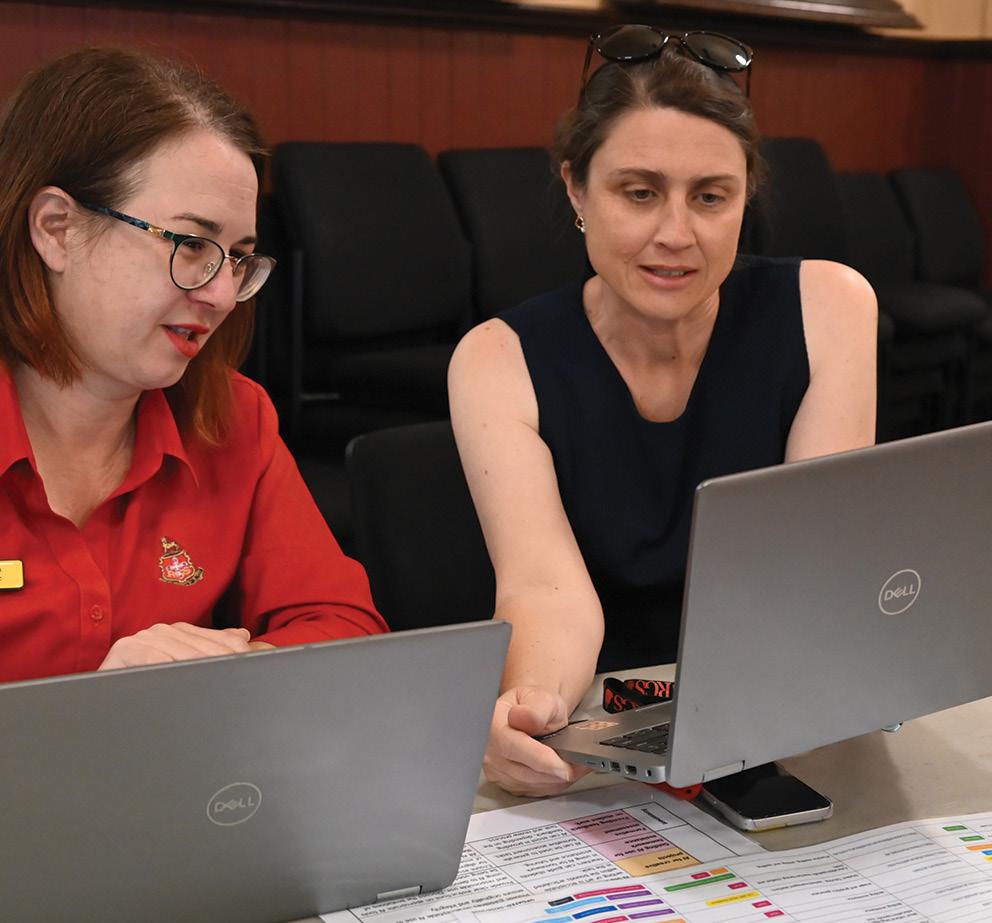
“The School remains committed to preparing not only its students but also its wider community to thrive in a future shaped by AI.”
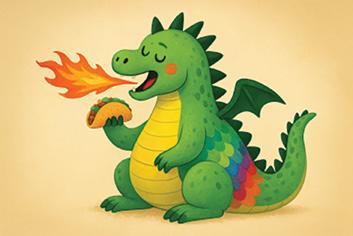
Non-teaching staff also attended their own AI Familiar sessions during Term 3. Grounded in the SEE model – Safely, Ethically and Effectively – these sessions explored how AI could support diverse roles ranging from counselling and communications to payroll, facilities, finance, and catering. Real-world scenarios enabled staff to reflect on how AI could add value to their specific responsibilities, while also highlighting potential risks and ethical considerations.
RGS is already recognised as a leader in this space, with its structured and inclusive approach to AI training placing the School at the forefront of adoption in education. By investing in the professional development of every staff member, RGS is laying strong foundations for confident, thoughtful, and innovative use of AI.
The work of Term 3 is only the beginning. As the GenAI at RGS programme continues to evolve, the School remains committed to preparing not only its students but also its wider community to thrive in a future shaped by AI.
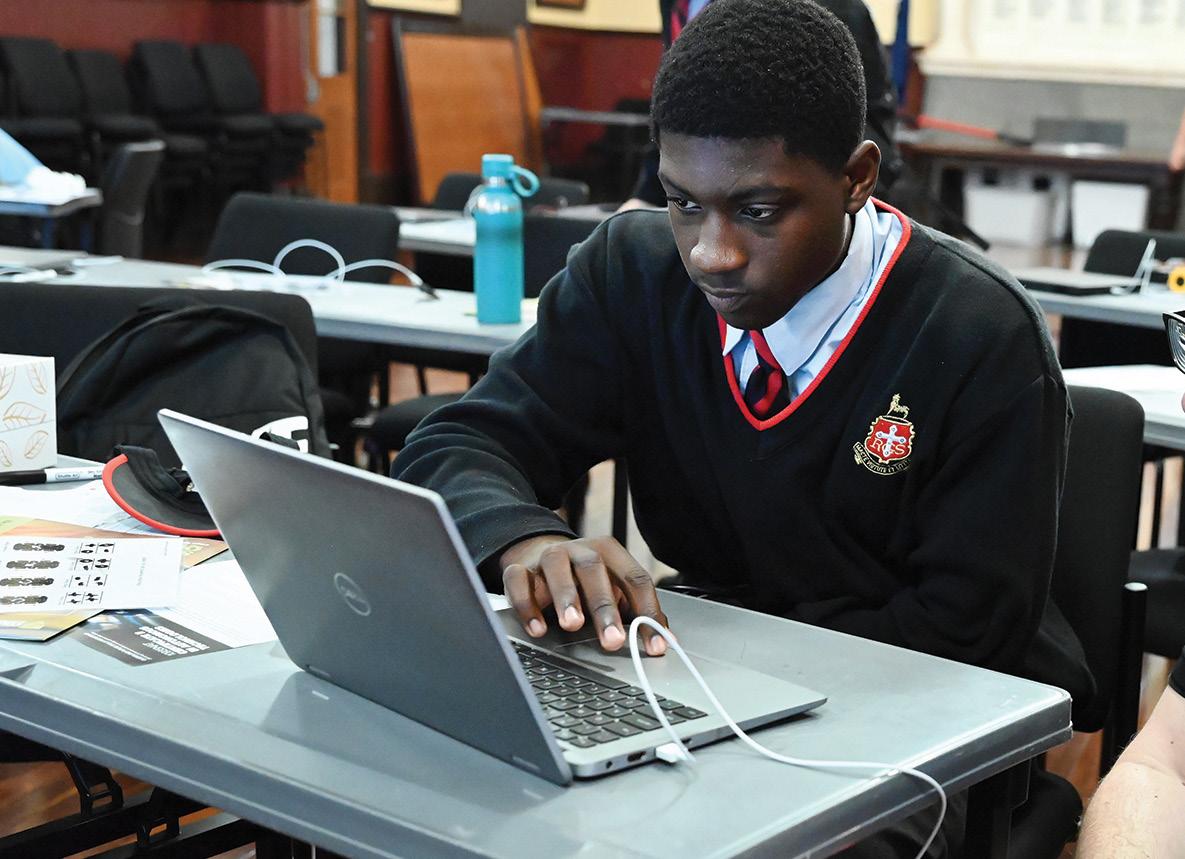
STEM: Problem solvers
The world of STEM is not just about coding and robotics – it is about learning critical STEM skills and applying them to real world problem solving. STEM Punks Education CEO and Program Director Michael Holmstrom visited The Rockhampton Grammar School in Term 3 to help students understand the broader benefits of STEM learnings.
Michael Holmstrom believes the biggest danger with STEM, and future careers pathways, is the virtual barrier that “I can’t do that”.
Having conducted workshops in countries around the world, with varying degrees of technological advancement, Mr Holmstrom still finds a common thread – that students like solving problems.
“It’s not about bits, bytes, and coding, we still use those tools in the workshop, but the real thing is how you can be creative, innovative problem solvers. That’s always across all ages and backgrounds,’’ Mr Holmstrom said.
“The students in the room that come in the morning and say “I can’t understand it”, “I can’t do it” – we win them over. They walk out saying we can do this, I understand it, and I love doing it.”
STEM Punks Education is helping students better understand autonomous technologies – how it is adopted and utilised in the real world in industries including aviation, resources, medical, space, transportation, and agriculture.
Mr Holmstrom said the starting point was learning the fundamental STEM skills in coding, robotics, artificial intelligence, and most importantly, problem solving and critical thinking to make sure the students can use those skills to build solutions.
“This workshop is not about turning them into coding or robotic experts, it’s about how they can quickly learn critical STEM skills and apply that in real world problem solving,’’ said Mr Holmstrom, who integrates theory with handson learning opportunities.
“We work with groups across the world who haven’t seen this before, can’t relate to this, and they don’t like to do this. First is to create
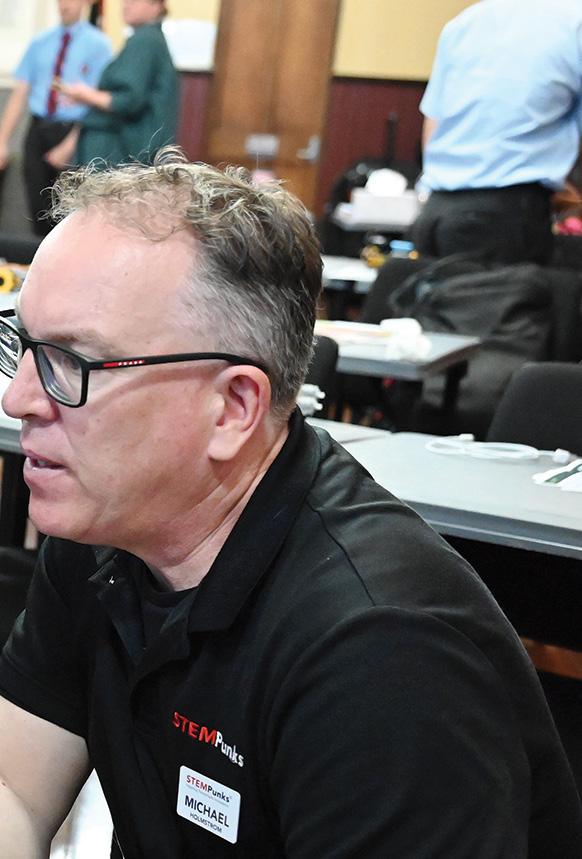
“The real thing is how you can be creative, innovative problem solvers. That’s always across all ages and backgrounds.”
Year 10 student Christopher McEwen works through a challenge with Michael Holmstrom.
Year 9
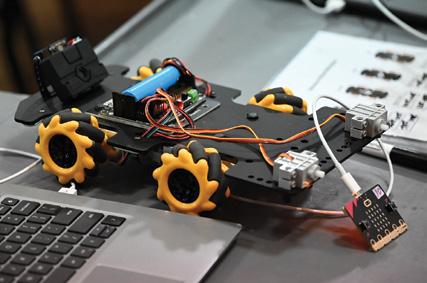
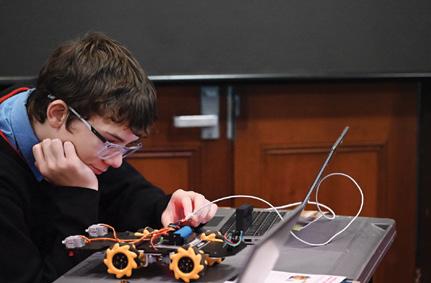
relevancy. How is this relevant to them. Today, pretty much every industry around the world has some type of automation, AI, and systems in what they do.
“The trick to get them on board this learning journey is to make it hands on – “I can do this”, “I can create this”, “I can make this”. This workshop is a mix of challenges everyone can do but also extension challenges that challenges everyone in the room to try their best.”
Mr Holmstrom wants the students to understand the autonomous technology relevance to future career paths.
STEM Punks Education is a pathway provider, helping guide students towards either TAFE or university studies and creating more awareness about autonomous technology.
Mr Holmstrom said he talks to the students about industry connection, with each problemsolving task related back to how it could be used in industry practice.
“How does what we learn relate to industry and how can we help create connections between industry and schools,’’ he said.
The workshops also look at Artificial Intelligence (AI) and it’s growing presence in industry.
Mr Holmstrom said when he asks students how they feel about AI the emotive responses range from excitement to fear and unknown.
“Since the dawn of technology, we have always used technology for both good and bad –whether that’s dynamite, lasers, cars,’’ he said.
“As scary as it can be, if used right, AI is a very valuable tool.
“AI can be used for massive improvements to actually amplify humanity if you use it right.
The workshop is about STEM but also about critical thinking.
“I might have opinions at this workshop, but that doesn’t mean I’m right or wrong. I want a conversation around that. As much as it’s about STEM, it’s about critical thinking and applying that to problem solving.”
The students worked across three sessions –starting with theory around AI, algorithms and autonomous systems.
Next was working with AI rovers – providing an engaging hands-on activity to create a semiautonomous solution.
Students finally brought all their theory and practical learnings together to find a solution that was fully autonomous.
The one-day workshop was provided by the Queensland Future Skills Partnership and STEM Punks Education. Staff from CQUniversity also visited the workshop to talk with students about future study pathways.
Left:
Right:
student Charlie Hull explores the world of autonomous technology.
Searching through the lens
Every Thursday afternoon, once the final school bell rings, a group of passionate photography students gather in the RGS Art wing – camera gear in hand and ideas buzzing. At the helm of this road to creative discovery are RGS Photography Club teachers Mrs Marika Rumford and Mrs Naomi Pellitier. This is their story.
This is the Photography Club, a vibrant and welcoming space where creativity, curiosity, and community come together under the guidance of Mrs Naomi Pellitier, a seasoned professional photographer with commercial experience, and Mrs Marika Rumford, a travel photography enthusiast.
What started as a simple after-school activity has grown into a thriving hub of artistic expression, technical exploration, and cross-year collaboration.
Each week, students dive into a world behind the lens, exploring the many ways photography can tell stories, capture emotion, and document the world from unique perspectives.
One of the most exciting aspects of the club is the wide range of photography techniques and styles students have learned.
From mastering manual camera settings – including shutter speed, aperture, and ISO – to experimenting with tripods and other equipment, students are steadily building their technical confidence.
They’ve discovered how to use black and white settings for dramatic effect, played with the magic of fast and slow shutter speeds, and learned how to enhance their work using Photoshop.
But it’s not just about the technical side. Photography Club encourages students to think creatively and express their feelings and moods through their images.
They’ve experimented with different types of photography, including cyanotypes (an old photographic printing process), macro and miniature photography, and delved into the artistic “destruction” of photos to explore new forms of expression.
“Photography Club encourages students to think creatively and express their feelings and moods through their
images.”
With each new challenge, students are encouraged to take creative risks and approach ideas from different angles. As one student put it, “We’ve really expanded our skills and techniques, but also our ability to think creatively and see the world differently.”
What truly sets the club apart is its community spirit.
Older or more experienced students have been supported to take on mentoring roles, offering support and guidance to younger members. This leadership builds confidence and strengthens connections across different year levels.
It’s not uncommon to see Year 10 students leading a group of Year 7s on a photography challenge, or simply helping with a casual critique session where everyone gives thoughtful feedback on each other’s work. The result is a warm, collaborative environment where friendships form and creativity flourishes.
Looking ahead, the Photography Club is planning more exciting projects – from themed photo challenges and exhibitions, to potential collaborations with other clubs and local artists.
It’s a space where every Secondary School student, no matter their level of experience, is welcomed and supported in their creative journey.
If you’re a current student with an interest in photography – or even just curious to learn something new – come join us on Thursdays after school. You don’t need to bring anything but your enthusiasm. Who knows what you might discover through the lens?
THROUGH THE LENS

Photography Club members, Year 10 students Ava Carolan and Jordie Furness provide an insight into their love of photography:
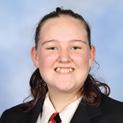
Ava – “I’ve been doing Photography Club for around three years. I find cameras really interesting and I was surprised at how many different settings there were on a camera. I did a bunch of photos on my phone but I wanted to try something a bit more professional. I love taking photos in the dark using the slow shutter speed and the available light.”
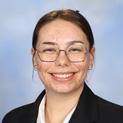
Jordie – “I’ve been doing Photography Club since Year 8. Photography has been in my life for a while (dad Dean is a photographer with MSP Photography) so I wanted to have a crack myself. I love working with aperture and depth of field. Photos with a blurred background really pop and like nice. I’m surprised at how much you can do with the camera and all the different settings to play around with. There’s always a lot of communication between the students when we’re taking photos and discussing different elements of each photo.”
A snapshot of photography techniques captured by RGS Photography Club students
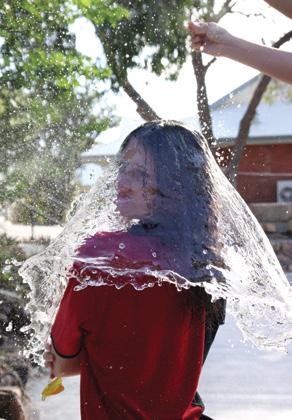
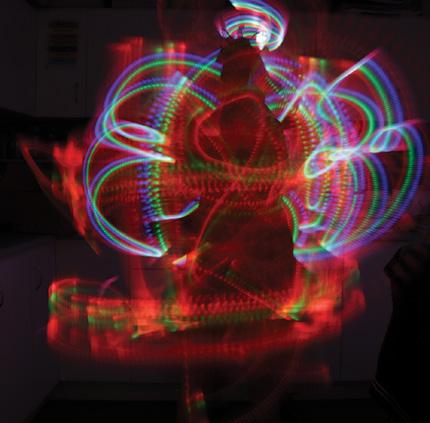
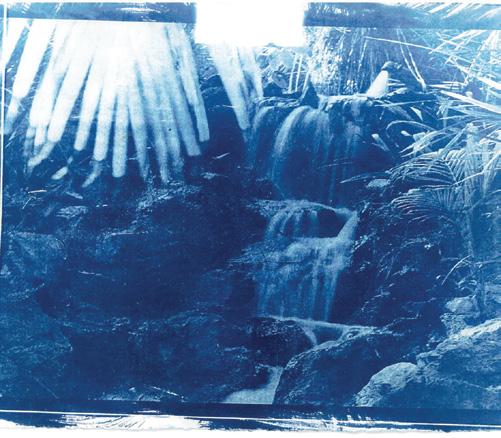
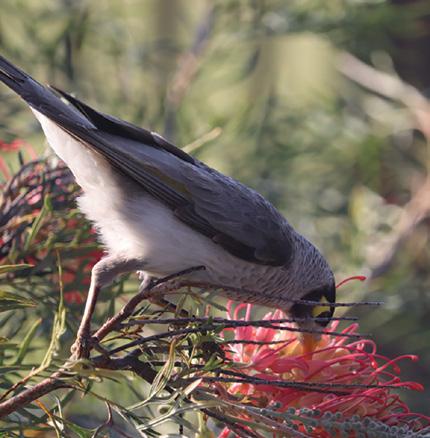
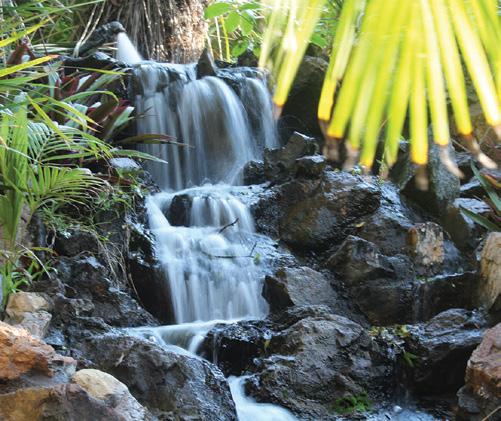
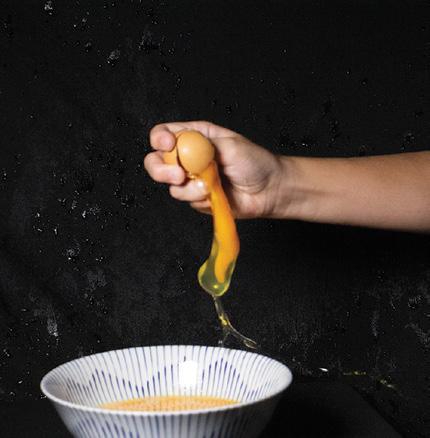
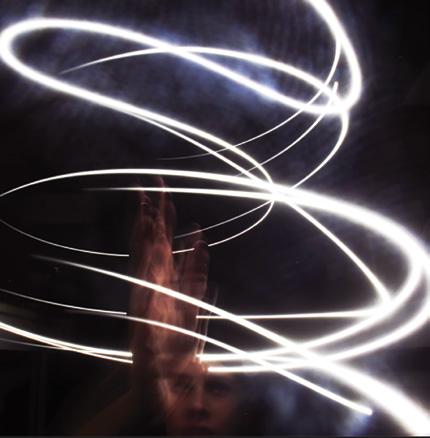
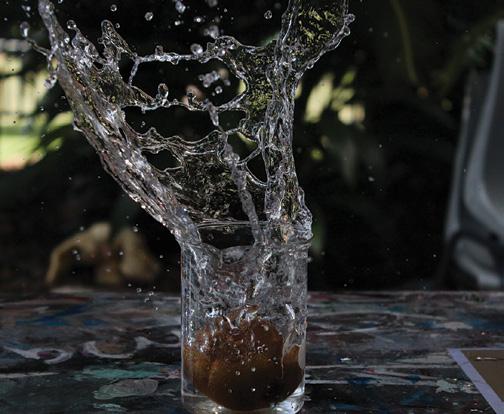
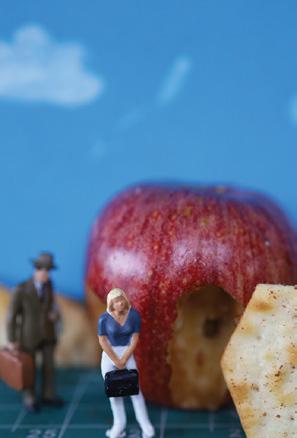
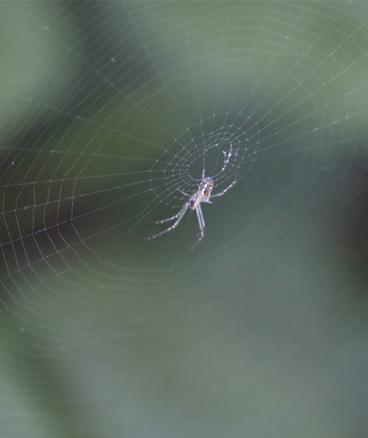
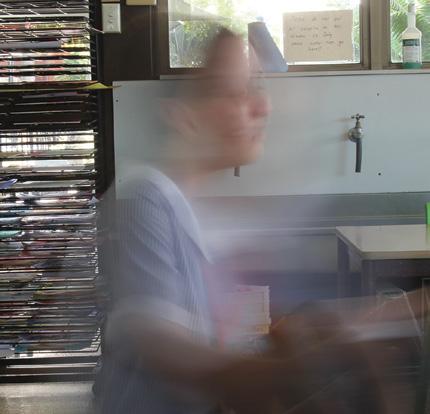
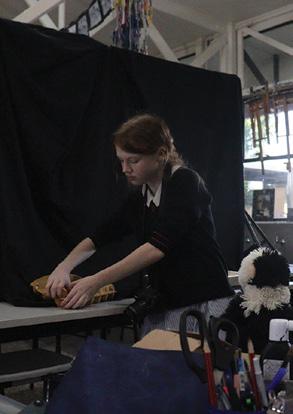
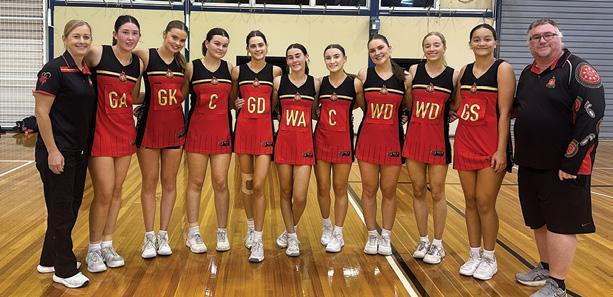
Netball Accolades
RGS wrapped up its 2025 netball season winning three RNA Premierships with Magic, Dodgers, and Lightning. RGS Suns also finished runners-up.
Congratulations also to Year 12 student, and netball captain, Kaylee Acton on her individual accolades. Kaylee was awarded the RNA June Gosby Memorial Trophy for the Rockhampton Sportsperson of the Year and the Liz Zammit Memorial Trophy for the most promising Junior Player playing in Senior A Grade. This followed Kaylee receiving the QISSN Player of the Carnival in Bundaberg at the end of Term 2.
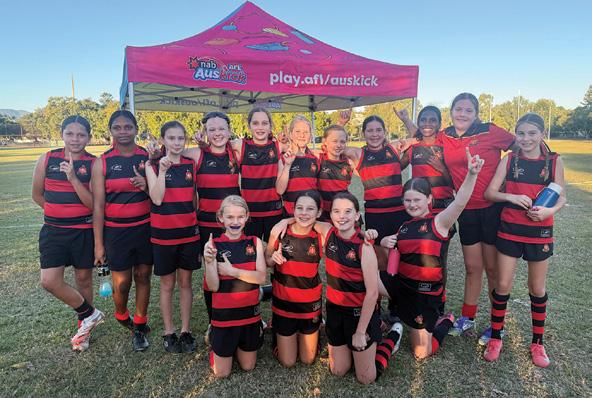
AROUND THE GROUNDS
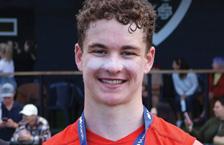
AFL
Year 11 student Oliver Bennett was named the Gold Coast Suns Most Valuable Player at the Under-16 AFL National Development Championships. Oliver played against the Brisbane Lions, Sydney Swans, and Tasmania. While the Suns didn’t get the wins, Oliver was a standout player on field, being named the Suns best on ground in both the Lions and Swans games.
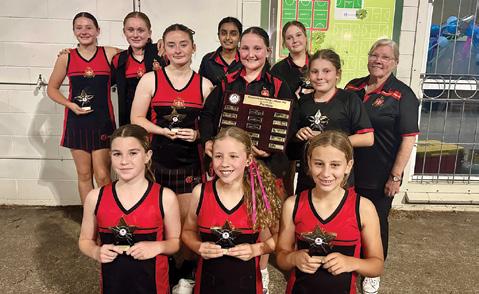
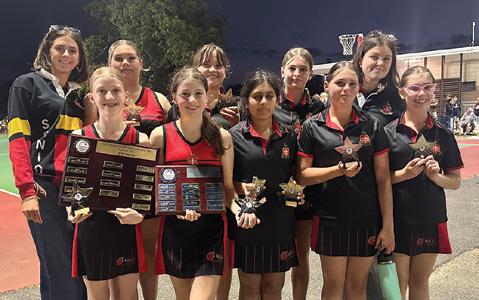
AFL Regional Champions
The RGS Primary schoolgirls AFL team won the Capricornia Regional AFLQ School Gala Day at Kele Park during Term 3. Playing in a round robin carnival against Yeppoon and Gladstone region schools, RGS played two back-to-back games against Calliope State School and St Benedict’s Catholic Primary School, Yeppoon. RGS scored a 53-9 win against Calliope and a 48-7 victory over St Benedict’s. RGS has now qualified to play at the next level, in the Wide Bay Regional Gala Day in Hervey Bay.
The School has come a long way with girls AFL. Fielding a girls team in the Primary Friday Sport competition earlier in the year, it’s a long way from when a handful of girls played the game but were often unable to progress to the next level of the “boys” competition.
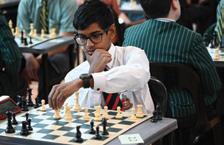
Chess
RGS hosted the Gardiner Chess Central Queensland Inter-School Tournament, welcoming 257 players. This event also served as a state qualifier, giving students the opportunity to represent Central Queensland in Brisbane later this year. Both the RGS primary and secondary teams performed exceptionally well and have been invited to compete in the state finals in Term 4.
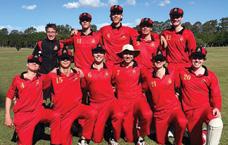
Cricket
RGS placed third at the Qld Cricket Streetsmart State T20 Finals in Brisbane. RGS lost their semi-final to a strong Padua College team, this year’s champion school, before scoring a win over St Patrick’s College Mackay in their play-off for third and fourth. Earlier in the round games, RGS won their four pool games.
Term 3 Grand Finals
RGS girls football and boys rugby league teams hit the fields for their season deciders in Rockhampton at the end of Term 3.
In the girls football grand finals, RGS went down 1-0 in a tight contest against Glenmore State High School in the Senior A division.
Year 12 student Chloe Hutson was named RGS player of the final for the RGS Senior A team, that qualified for the decider after a semi-final penalty shootout win, in near darkness, against Emmaus College.
In the Junior B division grand final, Emmaus College defeated RGS 3-2. RGS player of the final was Year 6 student Maggie van der Merwe who played both in goal before moving to the midfield.
Rugby Park hosted four consecutive days of Secondary Schoolboys rugby league grand finals, with RGS featuring in four games.
In the 7B division decider, RGS went down 20-0 against St Brendan’s College, after trailing 10-0 at half time. RGS player of the final was Charlie Crowther.
In the 8B grand final, scores were locked at 10-all at half time before St Brendan’s College defeated RGS 22-18. RGS player of the final was Theo Hart.
The RGS 9A team went down 32-12 against St Brendan’s College with Archie Sunderland named RGS player of the final.
In the 10A decider, St Brendan’s College defeated RGS 38-14 with captain Austin Armitage named RGS player of the final.
All teams produced some courageous efforts in the season deciders.
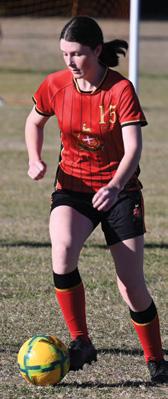
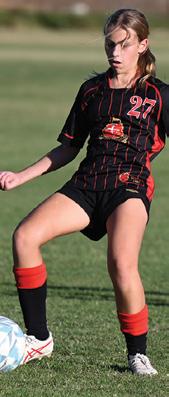
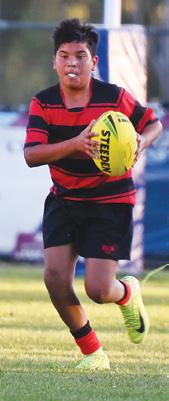
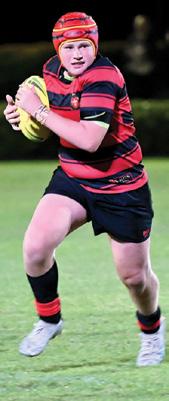
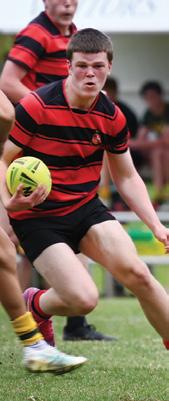
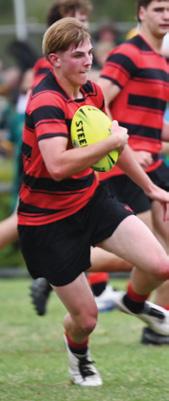
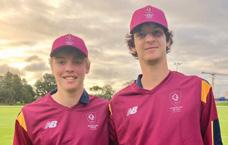
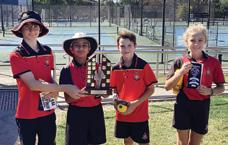
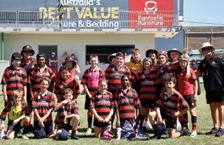
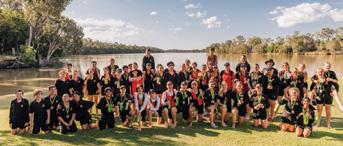
Year
and
students Riley
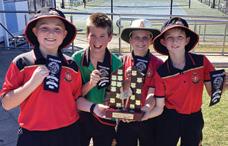
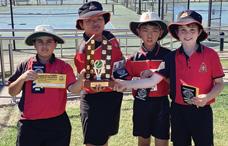
Friday Sport
Primary Friday sport wrapped up Season 2. At tennis, RGS won the A1, C1, and D2 divisions, while in rugby league RGS finished runners-up in the 6C division. Students also participated in netball and hockey. The final season of Friday Sport in Term 4 features basketball, cricket, oztag and touch football.
Rowing
RGS rowers wrapped up their 2025 season with impressive results in both local and regional regattas. RGS returned home with multiple gold, silver and bronze medals from the North Queensland Championships in Townsville. Earlier in the Term, RGS won 7 gold, 14 silver and 6 bronze medals at the Central Queensland Championships. Over the School holidays, RGS rowers competed in the Queensland Schools Rowing Championships at the Queensland State Rowing Centre at Lake Wyaralong in south-east Queensland.
Cricket
12
McDonald
Sam Gassman represented the Queensland Under-18 cricket team in Adelaide where they enjoyed an undefeated tour against South Australian U17 and U19 squads. Sam also represented the Queensland Schoolboys Under-19 team in a series of matches against a New South Wales schoolboys team in northern NSW.
Among the students proudly representing RGS in Term 3 grand finals were (from left) Georgia Appleton (Year 12), Evie Cook (Year 7), Jazz Blanco (Year 7), Nate Cowan (Year 8), Liam Callinan (Year 9), and Austin Armitage (Year 10).
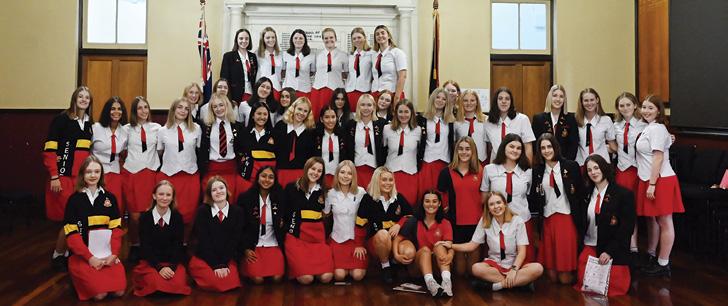
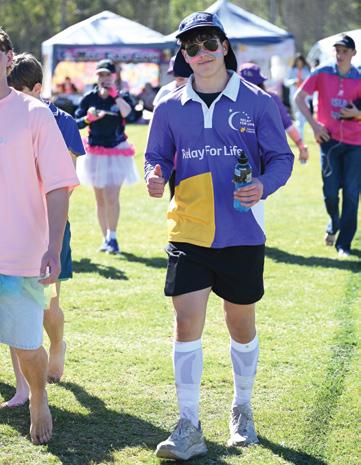
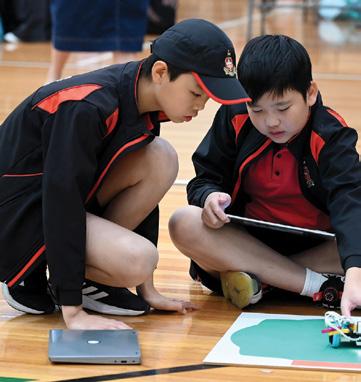
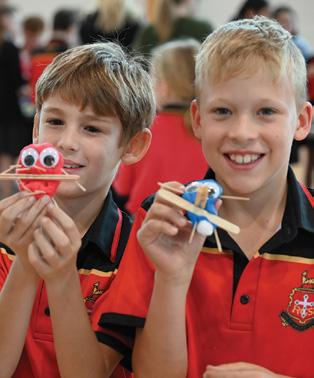
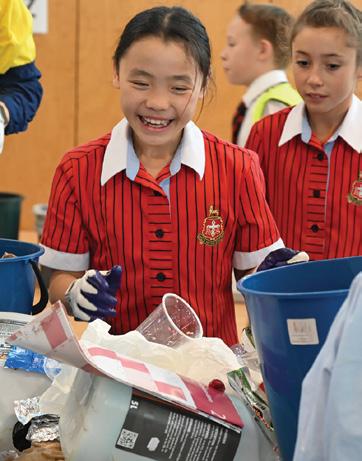
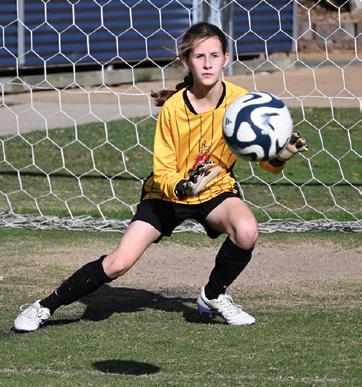
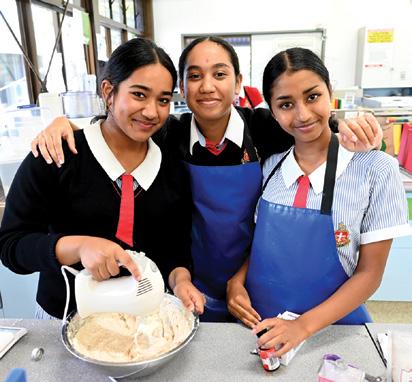
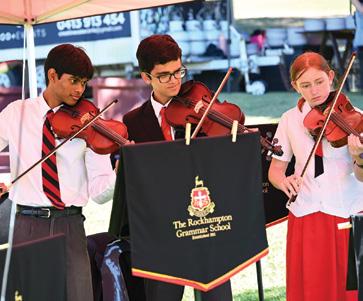
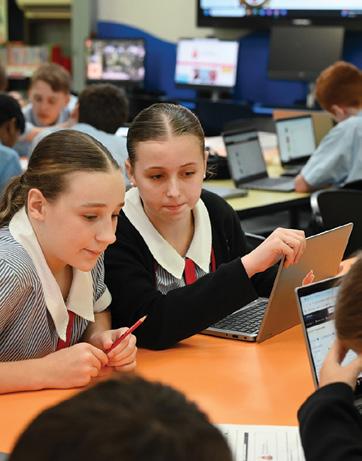
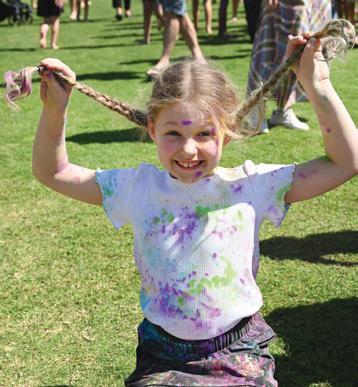
CLOCKWISE FROM TOP LEFT:
They did it! Congratulations to the Year 12 girls who participated in this year’s Ponytail Project; Joining the music entertainment at the Ritamada Long Lunch were Shyam Ashokumar (Year 11), Bhavik Bhardwaj (Year 11) and Immy Holcombe (Year 8); Year 7 students Penelope Moore and Addison Maurer; Elowyn Ward (Year 1) enjoys the Colour Run; Year 9 Food Technology and Textile students Fatiha Tehaam, Ashwini Thavnayagam and Imaya Mohotti; All smiles at Science Week are Year 3 students Jaxon Beezley and Toby Macnaughtan; Tackling a robotics challenge are Year 7 students Eason Han and Boshu Chen; Year 11’s Ned Clark had his walking shoes on for Relay for Life; Year 5’s Jaime Liu dives into the waste audit; Year 8 student Zara Kummerfeld keeps busy in goal at girls football.
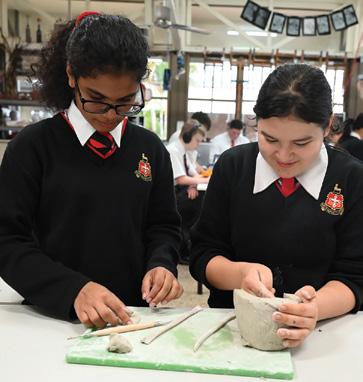
CLOCKWISE FROM TOP LEFT: Year 9 students Sithuki Liyanage and Arsha Kennedy fine tune their Art skills; Year 7’s Charlie Crowther makes another break at rugby league; Year 1’s Oliver Liu paints a masterpiece in Art; Lara Pearce portrays Queen Elizabeth II at the Year 6 Day of Notables presentations; Year 3 students Jimmy Hansen and Amelia Esdale search for some tasty strawberries; Standing up for being kind to others are Prep students Walter Linton, Quinn Buchholz, Lilly Griffiths, and Arjun Mayuran; Working through a STEM challenge are Year 10 students Lincoln Proffitt and
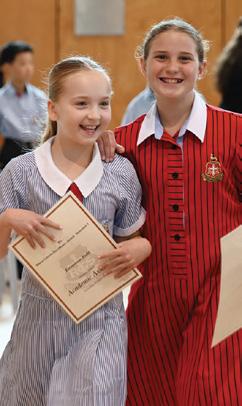
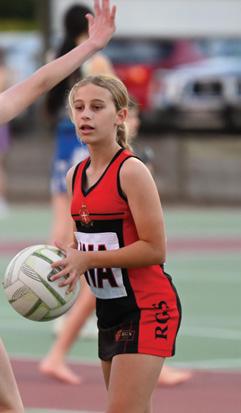
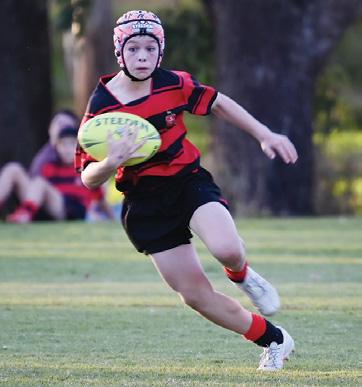
Leyton Steinhardt; Year 11’s Lucas McDougall prepares for his next chess move; Blue Adams joins her Year 5 Music class; Year 7’s Evie Cook hits the netball court for RGS; Award winning smiles from Year 4 students Emmerson Kuhl and Georgia Moore; Year 11’s Tonina NezicMoon takes to the stage in The Wiz; Making a break at Saturday morning touch football is Year 2 student Tucker Curtis
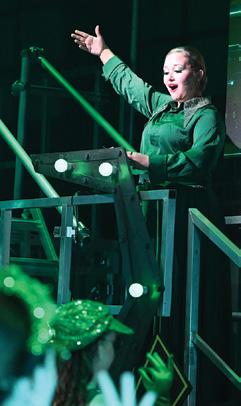

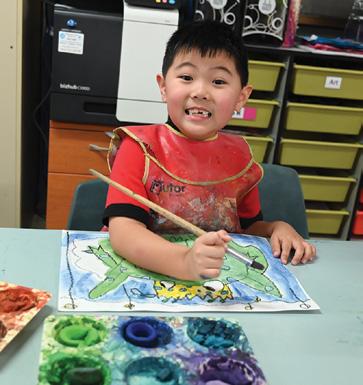
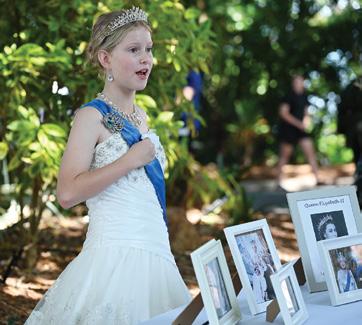
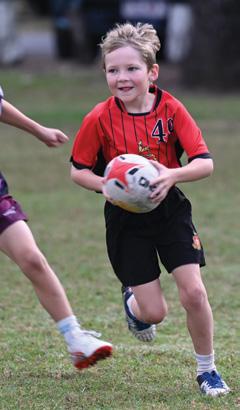
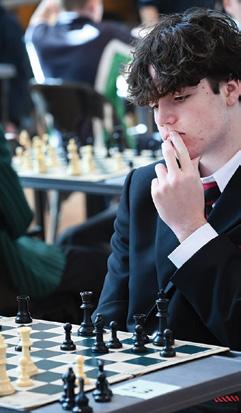
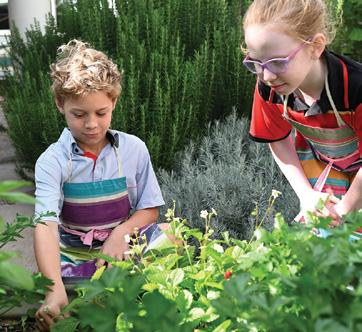
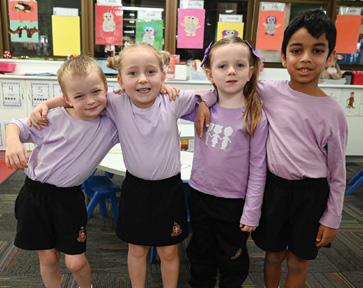
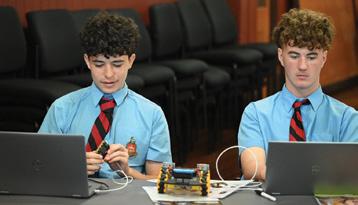
The final word
yLead Facilitator Sarah Hodge loves watching a quiet and hesitant room of students transform into a safe space where they can share their voice with others. It’s just one facet of the two-day Year 11 yLead leadership programme at RGS that was held during Term 3.
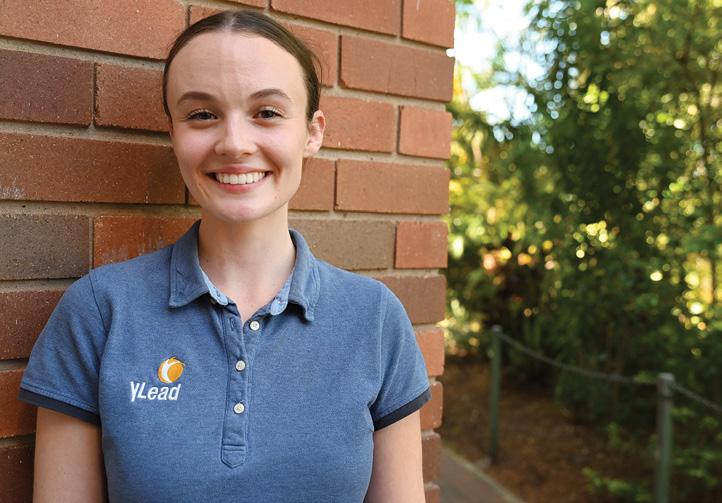
yLead believes leadership is about action, not a badge, and that all young people have the capacity to be active and inspiring leaders in their communities. Sarah was just one member of the yLead team that visited RGS, along with RGS 2023 alumni Molly Cottam and Lilly Fraser, to help provide some leadership guidance for the 2026 Year 12 Senior cohort at RGS.
“We have crafted something that allows the students to firstly establish a solid foundation as a cohort about what their leadership is and what it will look like, but more importantly craft what they want their legacy to be. To build and develop their skills to execute that,’’ Sarah said.
“They already have a grasp of what leadership is. They just overcomplicate it.
“At yLead our leadership philosophy is that leadership is about action and great leadership is about creating action to make the world, the communities, better placed. They are doing that without realising how fundamental that is and that’s all there is to it.”
yLead ask the students to stand up and articulate themselves – to share with the group. It’s an evolution. The odd one or two hands raised early in each session is soon replaced by working out how to hear from as many voices without running out of time.
Students are also guided out of their “friend” comfort zones.
“We say you will get the most out of this by working with someone you aren’t best friends with, that you don’t spend all your time with. You will participate in the sessions and learn from each other,’’ Sarah said.
“We help them recognise that they are Seniors, role models for younger students and their cohort, and that is an influential power to hold.”
The first day group sessions aligned with the framework of – leading self, leading others, and changing the world. Students set expectations and foundations about what they want to gain from this opportunity.
What does great leadership look like and what do they want their legacy to become?
“On the first day we encouraged the students to recognise that “together has power”. When they when work together they will achieve so much more than if they approach a task individually, or competitively, when that doesn’t have to be the case,’’ Sarah said.
“We also explore how valuable their opinions are and how to articulate those opinions and share respectfully. We look at how to create spaces where people feel safe and confident doing this.
“We also simulate to them the impact and influence their actions have – how their leadership of self directly impacts the environment they are a part of.
“We help them recognise that they are Seniors, role models for younger students and their cohort, and that is an influential power to hold.
“How can they harness that to do something productive for the school to make the communities we are a part of really positive, productive, and empowering to be a part of, while also encouraging others to be a part of.”
Day two the workshop moved to Ritamada and the focus shifted to recognising how they could change the world. It’s about crafting their 2026 Year 12 legacy and putting a face to what that legacy will become.
Sarah said it was still important to respect “the best” of the past.
“Traditions and values underpin everything that happens at Grammar. The School also has a framework that underpins everything.
“The students are also still individuals. Their legacy will become the toppings – what will they add to what already exists. What will they create that they are proud of at the end of the year.”
They worked as a cohort to navigate a team challenge.
“This was my favourite part – the retrospect at the end of the challenge of “wow”, we were actually capable of achieving that and we didn’t think we were,’’ Sarah said.
Sarah said they ended their workshop with “seeing the good”.
“It’s a more reflective look on the influences their time at Grammar has had on them, the influence the people that have been a part of this journey have had on them. The most beautiful part is the opportunity to shout out and share gratitude for their cohort and the people in that cohort they respect for being the best of themselves.”

